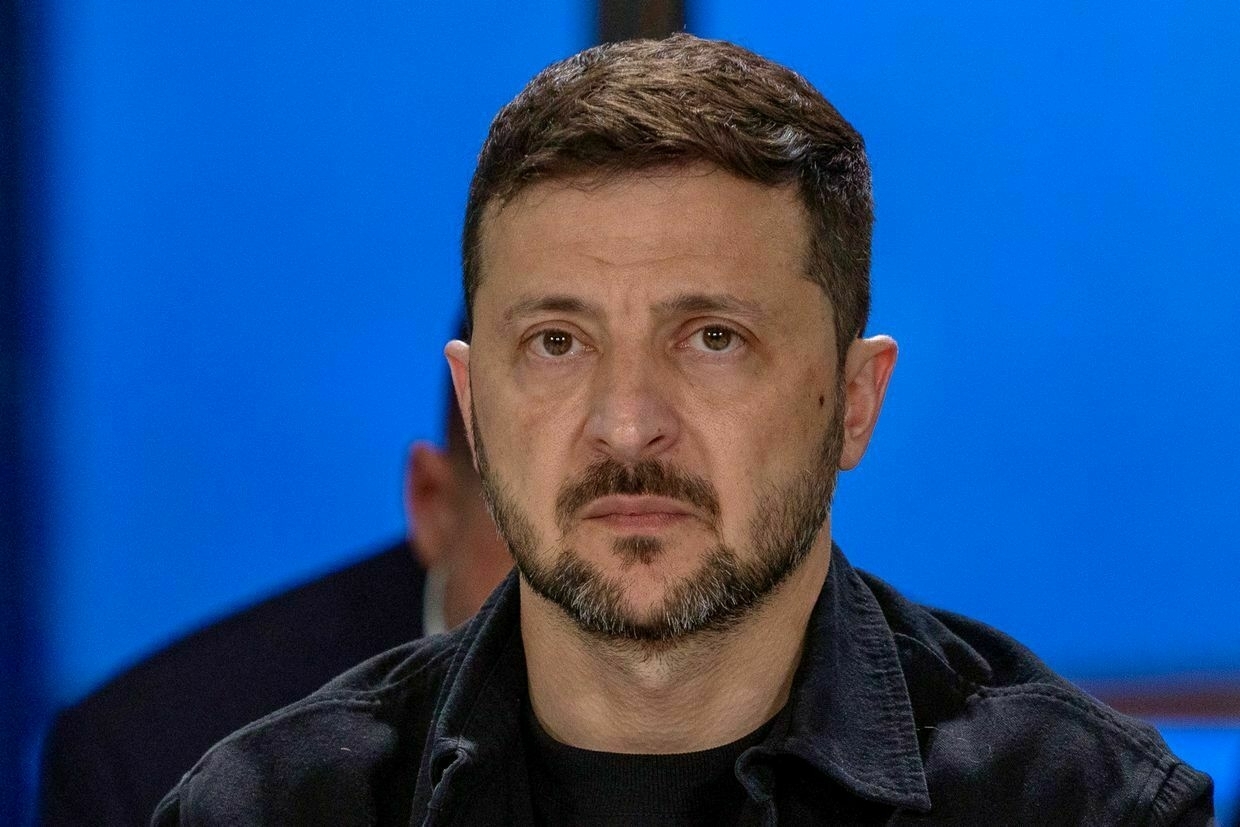-
'They are not so successful' — Zelensky rejects claims of major Russian advances
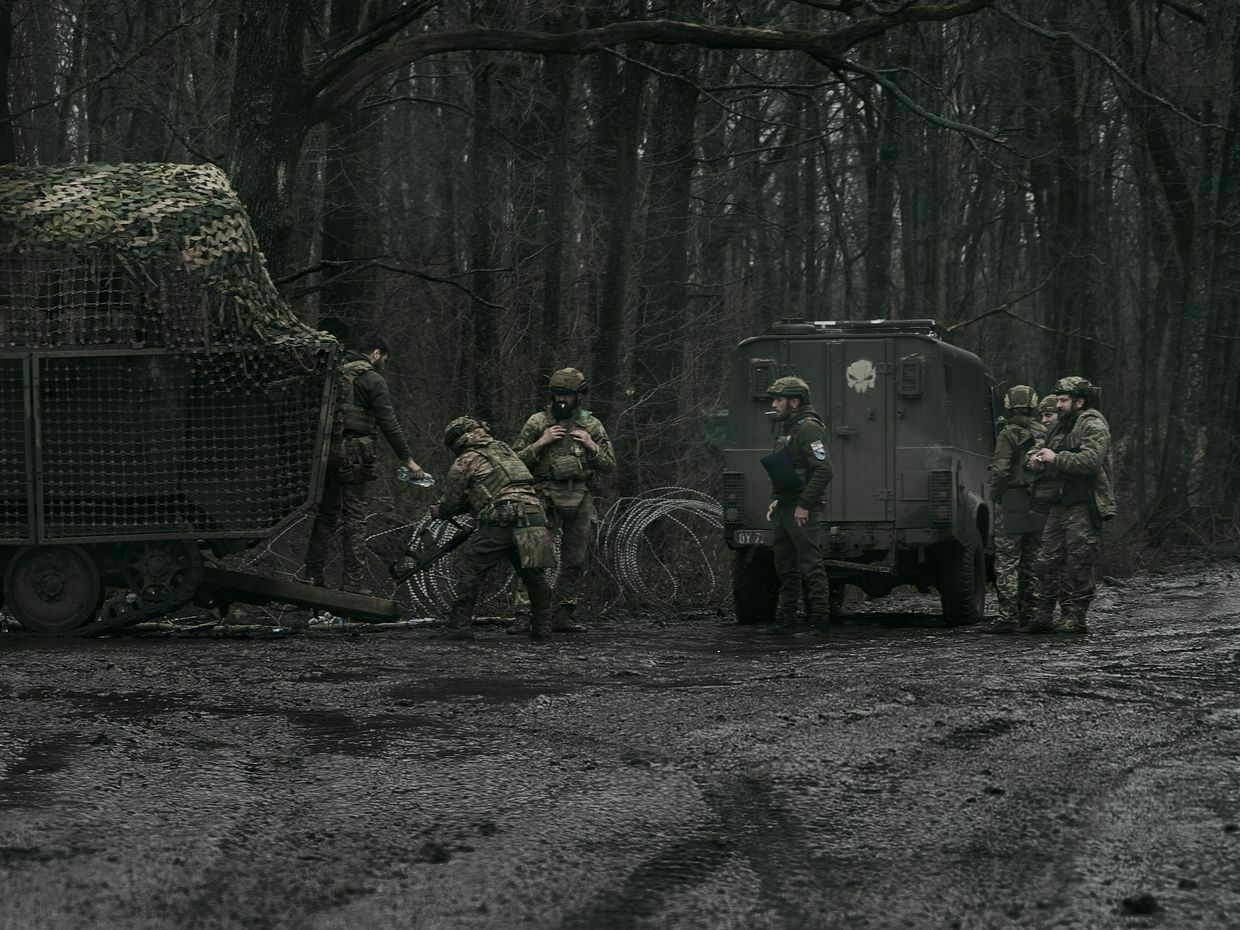
President Volodymyr Zelensky dismissed Russian claims of significant battlefield gains, calling them part of a disinformation campaign during an interview with Bild published on June 12.
Zelensky rejected claims of Russian advance as “a Russian narrative,” insisting that Ukraine’s forces have been holding off a renewed offensive for nearly three weeks.
“The Russians are not so successful, to say the least,” Zelensky said.
His remarks come amid a surge in Russian military operations across Ukraine’s eastern and northern regions, including Russian claims of territorial gains in Dnipropetrovsk and Sumy oblasts — assertions Kyiv denies.
Kremlin spokesperson Dmitry Peskov told the Russian state media on June 9 that the offensive in Ukraine’s Dnipropetrovsk Oblast aims to establish a so-called “buffer zone” on Ukrainian territory.
The statement followed Russian President Vladimir Putin’s earlier announcement that Moscow intends to create security corridors along Ukraine’s borders with Russia’s Kursk, Bryansk, and Belgorod regions.
Ukrainian officials denied any Russian advances into Dnipropetrovsk.
“As of the morning of June 9, all Russian information, including Peskov’s statements, about an offensive in Dnipropetrovsk Oblast does not correspond to reality,” said Andrii Kovalenko, head of Ukraine’s Center for Countering Disinformation.
Ukraine’s Southern Operational Command described the situation as “tense” but said no breakthroughs had occurred.
Despite the absence of confirmed ground incursions, Dnipropetrovsk Oblast has faced frequent missile and drone attacks. In April, the region initiated mandatory evacuations from four front-line villages as a precautionary measure.
Separately, open-source monitoring group DeepState showed some advances near the Russian border in Sumy Oblast. On June 8, DeepState confirmed that Russian troops had occupied the village of Loknia in Ukraine’s Sumy Oblast.
Located about 30 kilometers (20 miles) north of Sumy, the village lies close to the Russian border in an increasingly volatile region. The Ukrainian General Staff has not commented on the development.
According to an article by Ukrainska Pravda, Russian forces began advancing into northern Sumy Oblast in late February or early March, taking advantage of the withdrawal of Ukraine’s most combat-capable units. These were reportedly replaced by newly formed, under-resourced brigades with minimal combat experience and limited equipment.
Since March, Russia has reportedly taken control of about 200 square kilometers (80 square miles) in northern Sumy Oblast, including roughly a dozen small villages. The advances have triggered civilian evacuations. As of May 31, regional authorities ordered the evacuation of 213 settlements.
As Russia inches closer to Dnipropetrovsk Oblast, new Ukrainian region might soon be at warMoscow said its troops had crossed into Dnipropetrovsk Oblast and were conducting offensive operations in the region, a claim Kyiv quickly denied as “Russian disinformation.” Russian troops have been pushing toward Dnipropetrovsk Oblast for months, trying to solidify the southern flank to capture Pokrovsk and the remaining parts of theThe Kyiv IndependentAsami Terajima
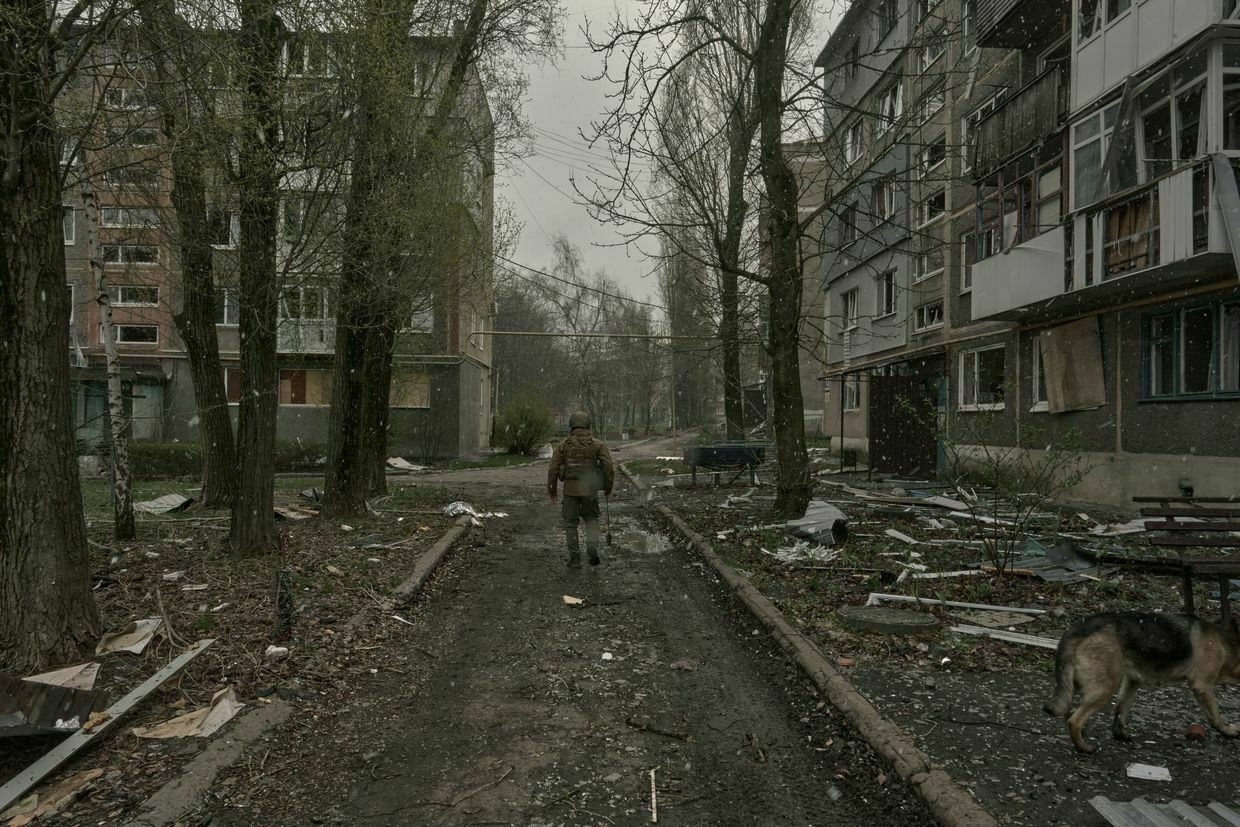
-
Death toll of Russia's June 7 strike on Kharkiv rises to 5
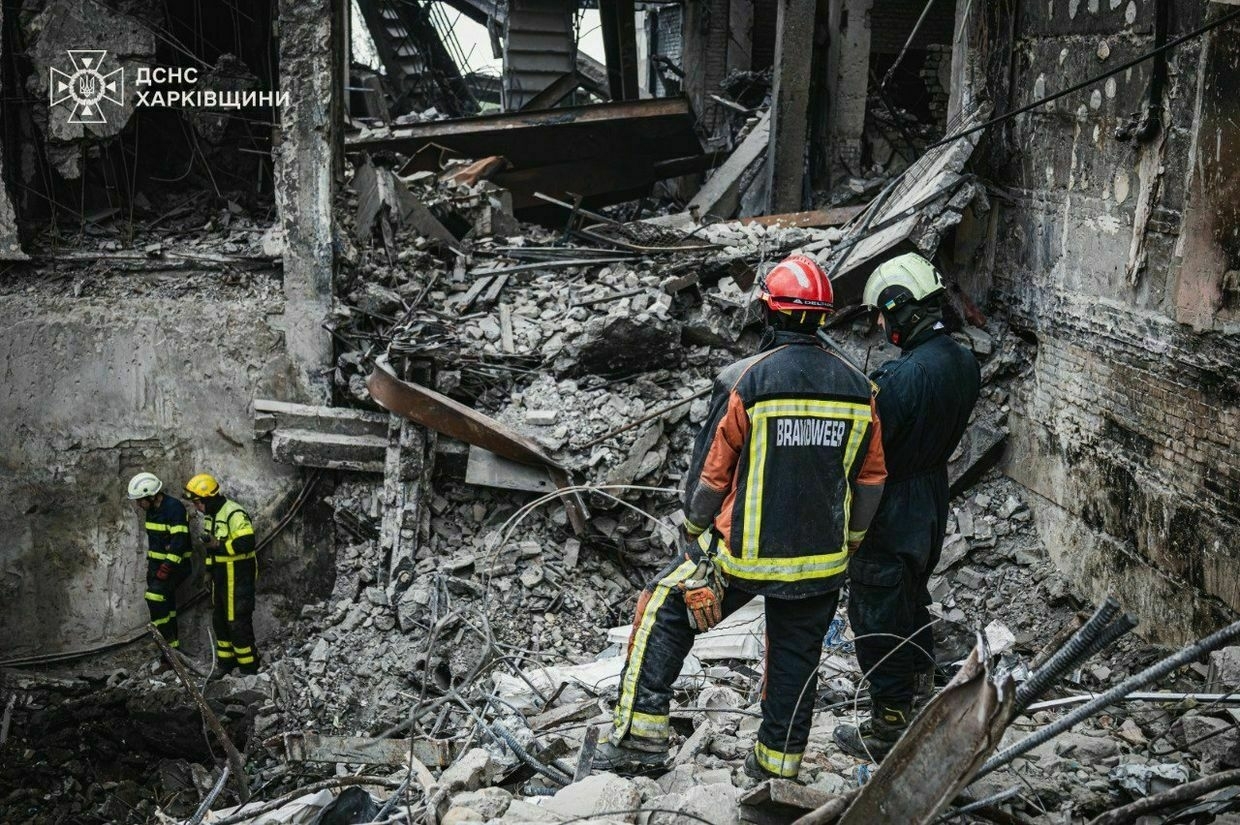
The death toll of a Russian attack on the northeastern city of Kharkiv on June 7 has risen to five, as two more bodies were found in the rubble, Governor Oleh Syniehubov said on June 12.
The State Emergency Service reported the discovery of the fourth victim earlier in the day, adding that search and rescue operations are ongoing as more people may be under the rubble.
Russia attacked Kharkiv with drones, missiles, and KAB bombs overnight on June 7, damaging industrial buildings in the Kyivskyi district, causing structural collapses and large-scale fires. Authorities initially reported three people killed and 19 injured in the attack.
Later the same day, Russia again attacked the city with KAB bombs, killing two more people and injuring 18.
Recent weeks saw Moscow’s forces intensify attacks against Kharkiv, Ukraine’s second-largest city that lies a little over 20 kilometers (around 15 miles) south of the Russian border. A Russian drone attack against the city overnight on June 12 injured at least 15 people, including children.
The strikes take place as Kyiv warns of Russia’s mounting ground assaults along Ukraine’s northeastern border.
‘Juicy target’ — Ukraine says it struck Russian electronics plant in Moscow OblastThe facility assembles circuit boards and electronics for the Russian military-industrial complex, the General Staff of Ukraine’s Armed Forces said.The Kyiv IndependentMartin Fornusek
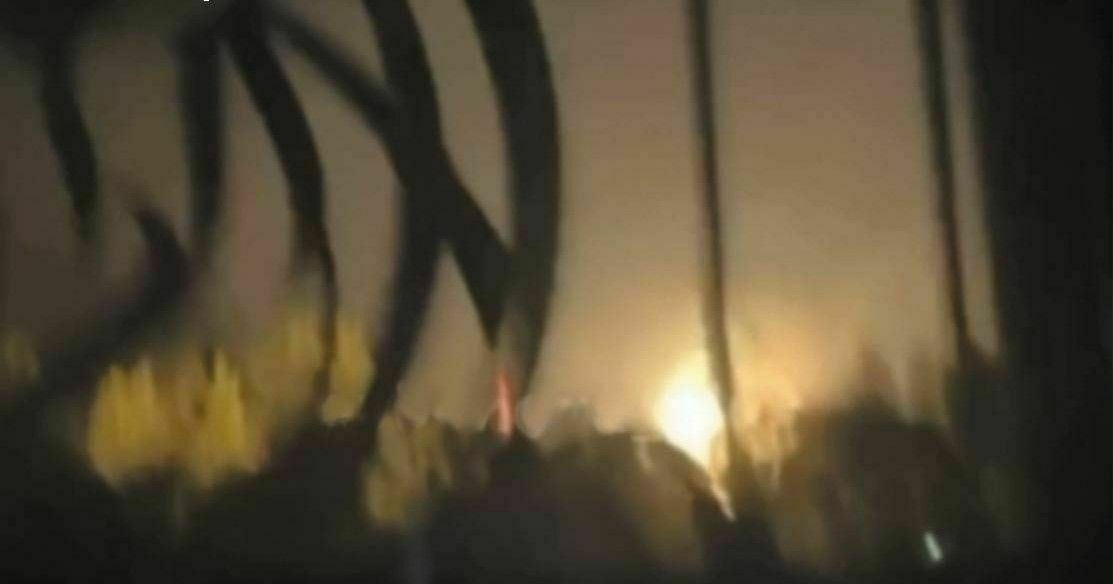
-
Russia using peace talks to stall US sanctions, Zelensky says
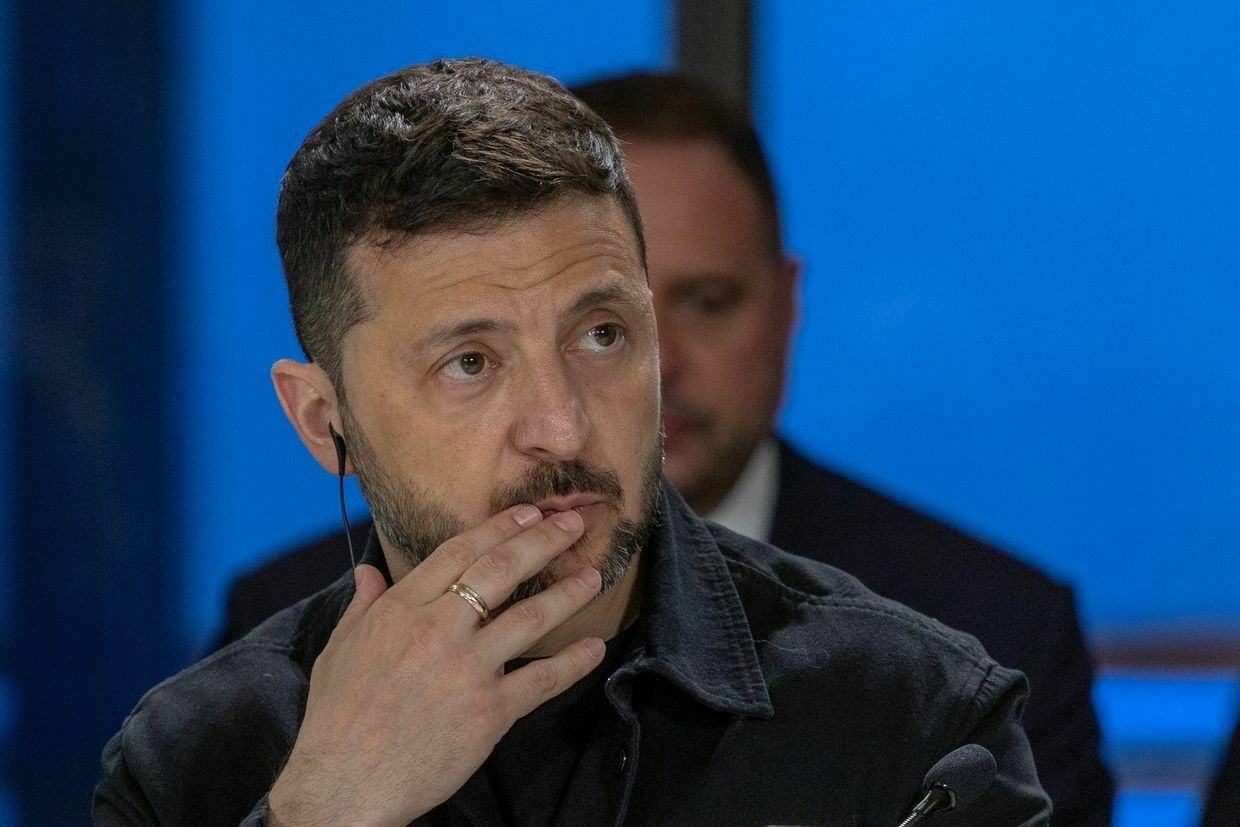
Russia is attempting to delay peace negotiations to avoid tougher U.S. sanctions, President Volodymyr Zelensky said in an interview with German tabloid Bild on June 12.
His comments come as Russia continues to reject a full ceasefire despite having initiated two rounds of peace talks in Istanbul — first on May 16 and on June 2.
Both rounds resulted in agreements on prisoner exchanges, but failed to deliver progress toward ending hostilities. During the negotiations, Moscow ramped up ground offensives and launched massive attacks on Ukrainian cities.
“It’s important for them to show (U.S. President Donald) Trump that there is a diplomatic bridge between Ukraine and Russia,” Zelensky told Bild.
“So that sanctions aren’t imposed against Russia” while talks are ongoing, Zelensky said, adding that Russian President Vladimir Putin’s strategy is to maintain the illusion of dialogue and then argue: “We’re talking to each other! If sanctions are imposed, there will be no more talks."
Zelensky warned that Moscow’s goal is not peace but buying time.
“Putin feels that his economy is now suffering,” he said. “But he wants to gain even more time until the strong sanctions are introduced, because he can still hold out for some time."
Trump has previously warned he would impose new sanctions on Moscow, but has yet to take the step. On June 5, Trump said he was withholding the move in hopes of a potential peace deal but warned he could act if Russia continues to stall.
“When I see the moment where it’s not going to stop… we’ll be very tough,” Trump told reporters.
Critics, as well as Zelensky, argue that the slow implementation of sanctions gave Russia time to adapt its economy and defense sector. “The main mistake of the sanctions was that they were introduced too slowly,” Zelensky said.
Trump has repeatedly said he is monitoring the situation and hinted sanctions could come soon if progress is not made. Meanwhile, a bipartisan bill in the U.S. Senate that would impose harsh tariffs on countries buying Russian oil remains on hold as lawmakers await Trump’s signal.
‘Deadline is in my brain’ — Trump dismisses timeline to impose Russian sanctionsU.S. President Donald Trump sidestepped questions on June 5 as to when he can be expected to impose additional sanctions on Russia, as the Kremlin continues to reject a ceasefire in Ukraine.The Kyiv IndependentDmytro Basmat
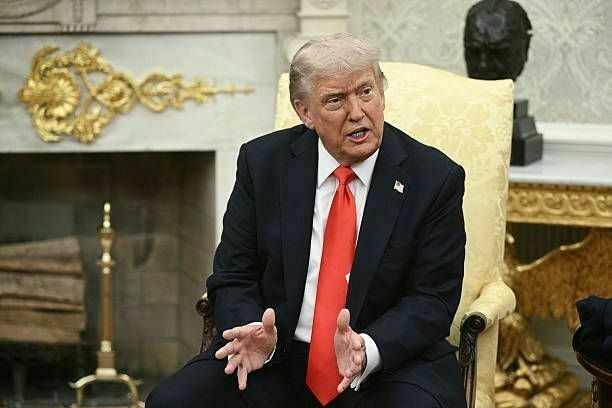
-
Russia killed at least 3, injured 37 across Ukraine over past day
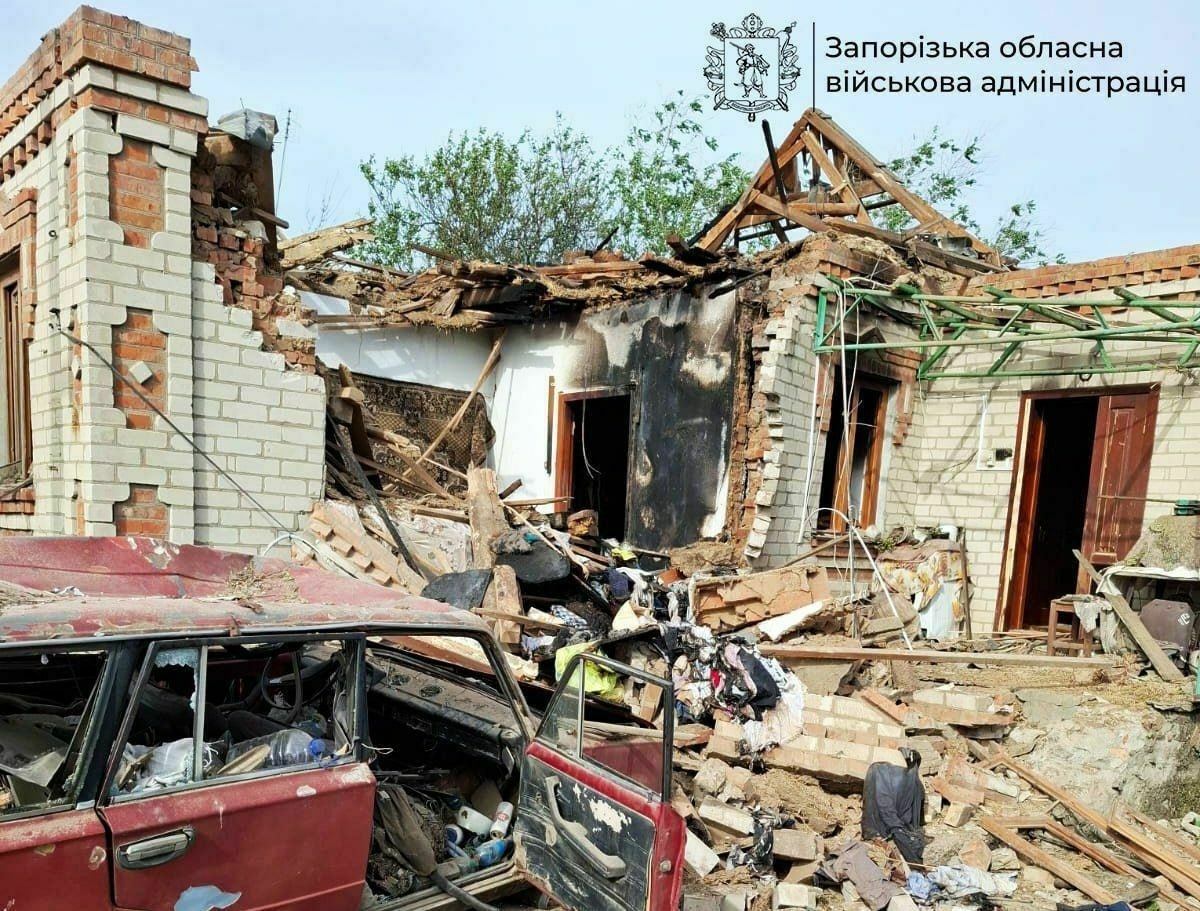
At least three civilians were killed and 37 injured across Ukraine in Russian attacks over the past day, regional authorities reported on June 12.
According to the Ukrainian Air Force, Russian forces launched 63 drones, including Shaheds and other unmanned aerial systems, from multiple directions, including Kursk, Orel, Millerovo, and occupied Crimea.
The Ukrainian air defense reportedly shot down 28 drones, while 21 were intercepted by electronic warfare or disappeared from radars.
In Kharkiv Oblast, 16 people, including four children, were injured in attacks on the city of Kharkiv and surrounding communities, Governor Oleh Syniehubov said. The region was hit by various types of drones, missiles, and glide bombs, damaging residential buildings, schools, and other civilian infrastructure sites.
In Donetsk Oblast, two civilians were killed and six others injured in Russian strikes on Raiske and Toretsk, according to Governor Vadym Filashkin.
In Sumy Oblast, one person was injured when a Russian first-person-view (FPV) drone struck his car in the Sumy district, the regional administration said. More than 100 attacks were recorded across 37 settlements, damaging houses and prompting the evacuation of 80 residents from border communities.
In Zaporizhzhia Oblast, two people were injured in Malokaterynivka during a wave of nearly 500 attacks on 16 towns and villages, Governor Ivan Fedorov said. Russian forces reportedly used drones, air strikes, artillery, and multiple-launch rocket systems (MLRS) to target civilian areas.
In Kherson Oblast, 12 people, including one child, were injured, and one person in the village of Sadove was killed in an artillery strike, Governor Oleksandr Prokudin said. Russian forces attacked dozens of towns and villages, damaging residential buildings, infrastructure, and a national park.
Zelensky urges US to act on Ukraine’s request to buy air defenses after deadly Kharkiv bombing“These Russian strikes are not ‘retaliation’ but acts of destruction,” the president said as Russia attacked the city of Kharkiv with KAB guided bombs the evening of June 7, killing at least two people.The Kyiv IndependentOlena Goncharova
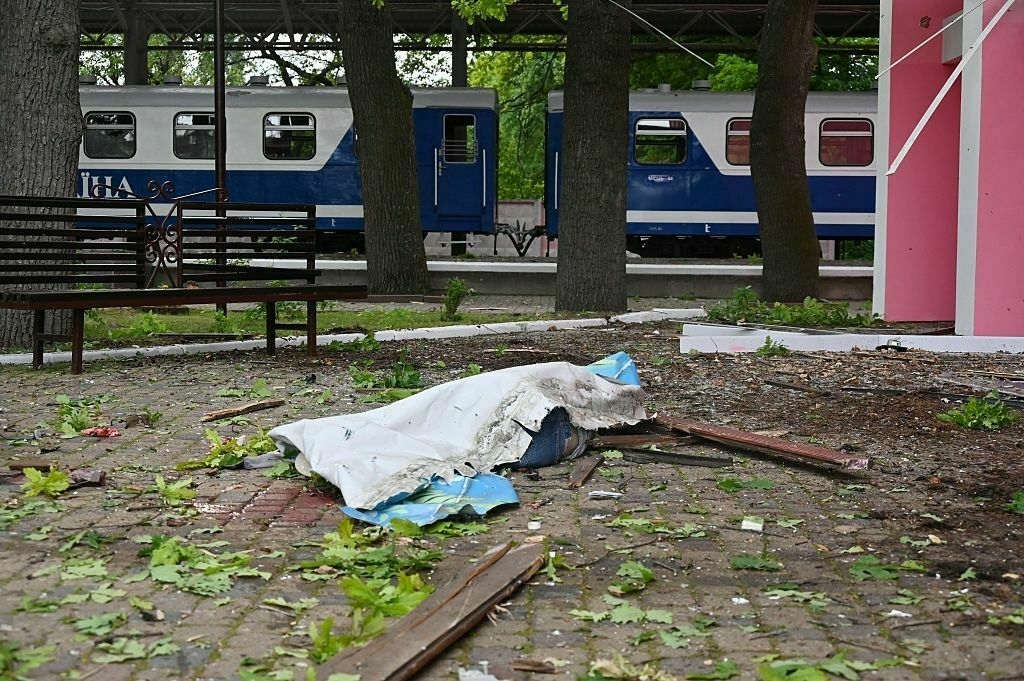
-
Ukraine strikes Russian electronics plant in Moscow Oblast, military says
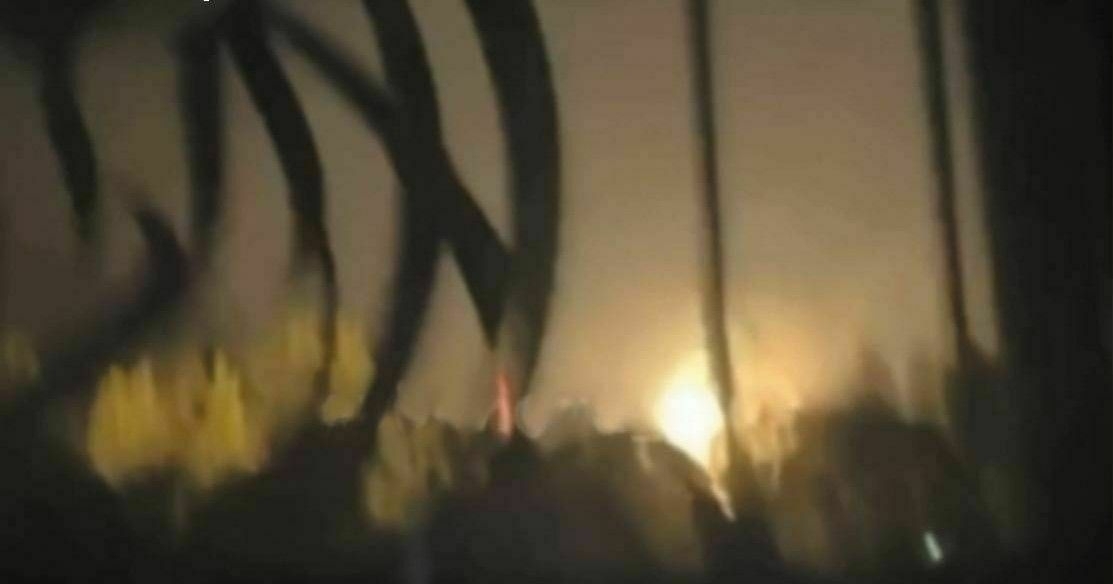
Editor’s note: The story is being updated.
Ukraine’s Unmanned Systems Forces attacked the Rezonit Technopark in Russia’s Moscow Oblast overnight on June 12, with explosions reported at the facility, the Ukrainian military reported.
The operation was meant to “reduce Russia’s ability to produce high-tech weapons and equipment,” as the facility assembles circuit boards and electronics for the Russian military-industrial complex, the General Staff of Ukraine’s Armed Forces said.
The consequences of the attack are being clarified, according to the statement.
Russia’s Defense Ministry claimed its forces shot down 52 Ukrainian drones overnight, including three over Moscow Oblast. Russian officials have not commented on a possible attack against the technopark.
-
With only 2 weeks of funding left, US group tracking Russian abduction of Ukrainian children prepares to shut down
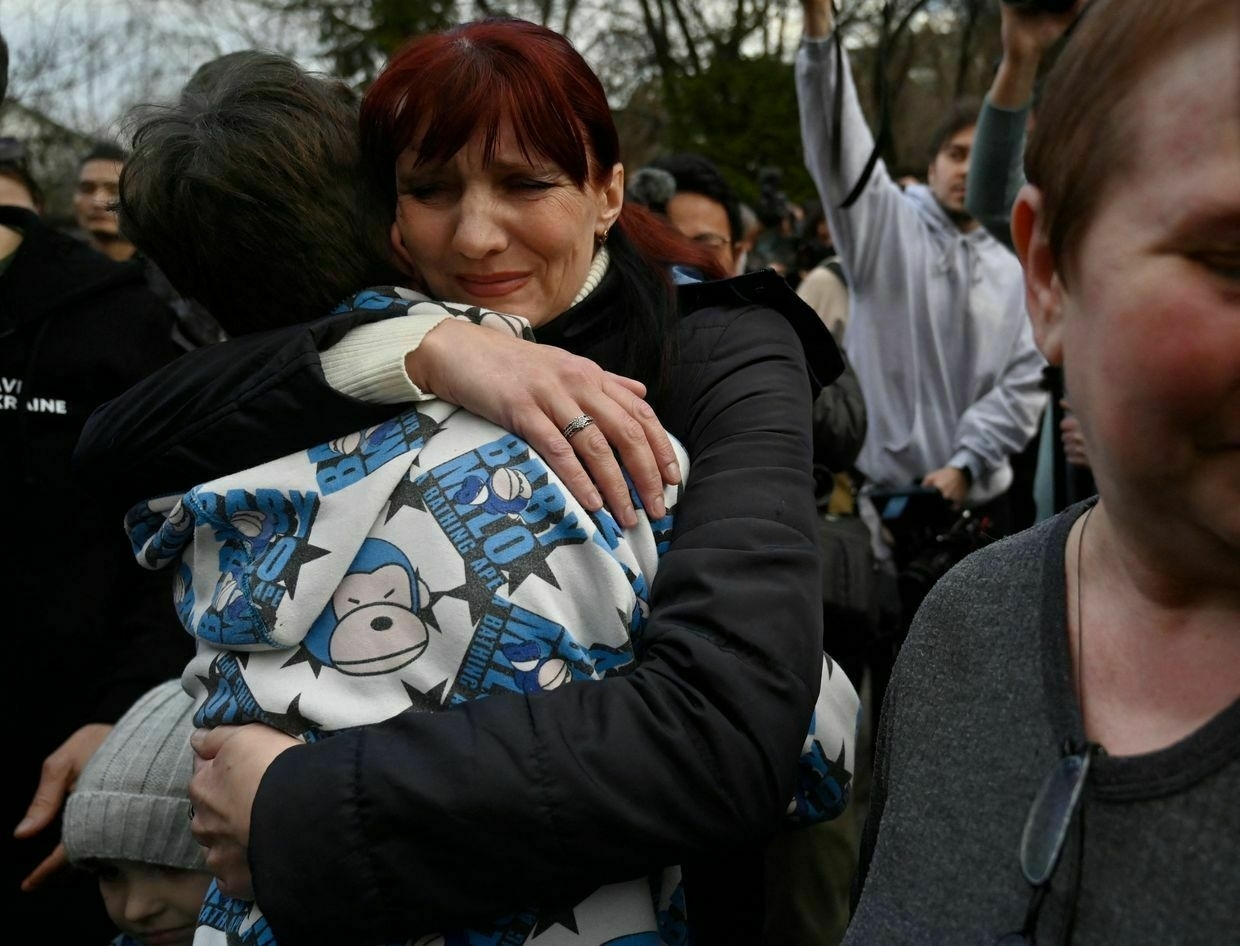
The leading U.S.-backed initiative documenting Russia’s abduction of Ukrainian children is preparing to shut down after its funding was terminated by the Trump administration, CNN reported on June 11.
The Yale University-based Humanitarian Research Lab, which spearheads the Ukraine Conflict Observatory, has reportedly transferred its data to the U.S. State Department and Ukraine’s government as it closes operations in the coming weeks.
“Right now, we are running on fumes,” Nathaniel Raymond, the lab’s executive director, told CNN. “As of July 1, we lay off all of our staff across Ukraine and other teams, and our work tracking the kids officially ends."
Since its launch in May 2022, the observatory has compiled evidence of Russian war crimes, including the deportation of Ukrainian children, many of whom were sent to reeducation camps or adopted by Russian families. The project relied on biometric and satellite data and has supported six International Criminal Court (ICC) indictments, including two related to child abductions, according to Raymond.
The database of the observatory contains records on more than 30,000 Ukrainian children allegedly abducted by Russia from over 100 locations, according to an undisclosed source cited by CNN. This figure outstrips estimates by Ukraine’s Children of War database, which says that over 19,500 children have been deported or forcibly displaced by Russia.
The program’s end leaves what experts call a major gap in accountability efforts.
“The Conflict Observatory’s work cannot be replaced by Europol or other organizations,” a bipartisan group of U.S. lawmakers reportedly wrote in a letter to Secretary of State Marco Rubio on June 11, urging the administration to restore funding.
While Rubio temporarily reinstated funding earlier this year to allow the lab to complete data transfers, he confirmed at a March 28 press conference that the program was ultimately defunded as part of government efficiency cuts. The transferred material, including documentation of attacks on civilian infrastructure and filtration sites, is now expected to be shared with Europol within days.
According to Ukraine’s Children of War database, only around 1,300 of the abducted children have been brought home so far. Many others remain unidentified due to deliberate efforts by Russian authorities to obscure their identities by altering names and birth records.
Ukrainian leaders have repeatedly emphasized that repatriating abducted children is a non-negotiable condition for any future peace deal with Moscow.
In 2023, the ICC issued arrest warrants for Russian President Vladimir Putin and children’s rights ombudsman Maria Lvova-Belova over their roles in the deportation of Ukrainian minors.
As Russia trains abducted children for war, Ukraine fights uphill battle to bring them homeAround the world, abducting a child is a serious crime punishable by years behind bars. But when the kidnapper is Russia, justice remains a distant hope. So does the child’s return home. Since the start of the full-scale invasion, Ukraine has identified over 19,500 children who have beenThe Kyiv IndependentDaria Shulzhenko
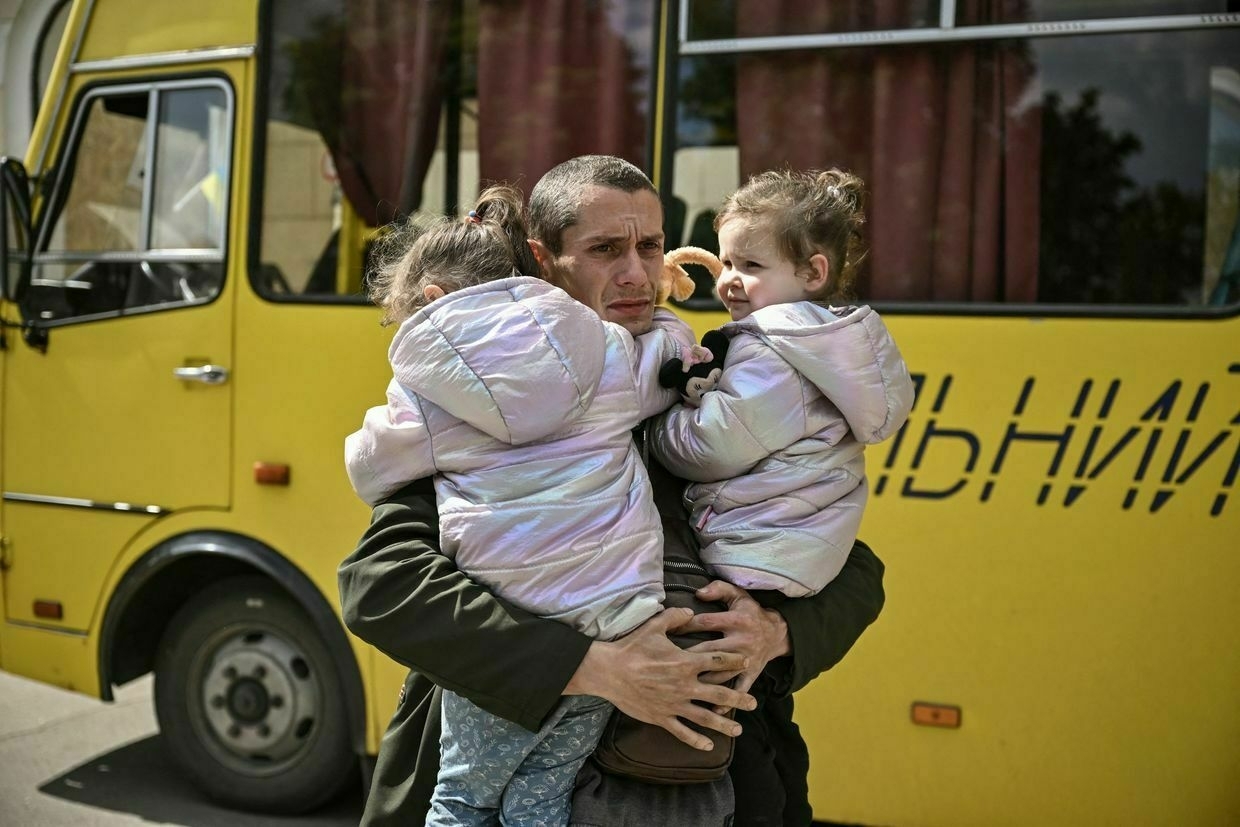
-
German Defense Minister Pistorius arrives in Ukraine to discuss military aid
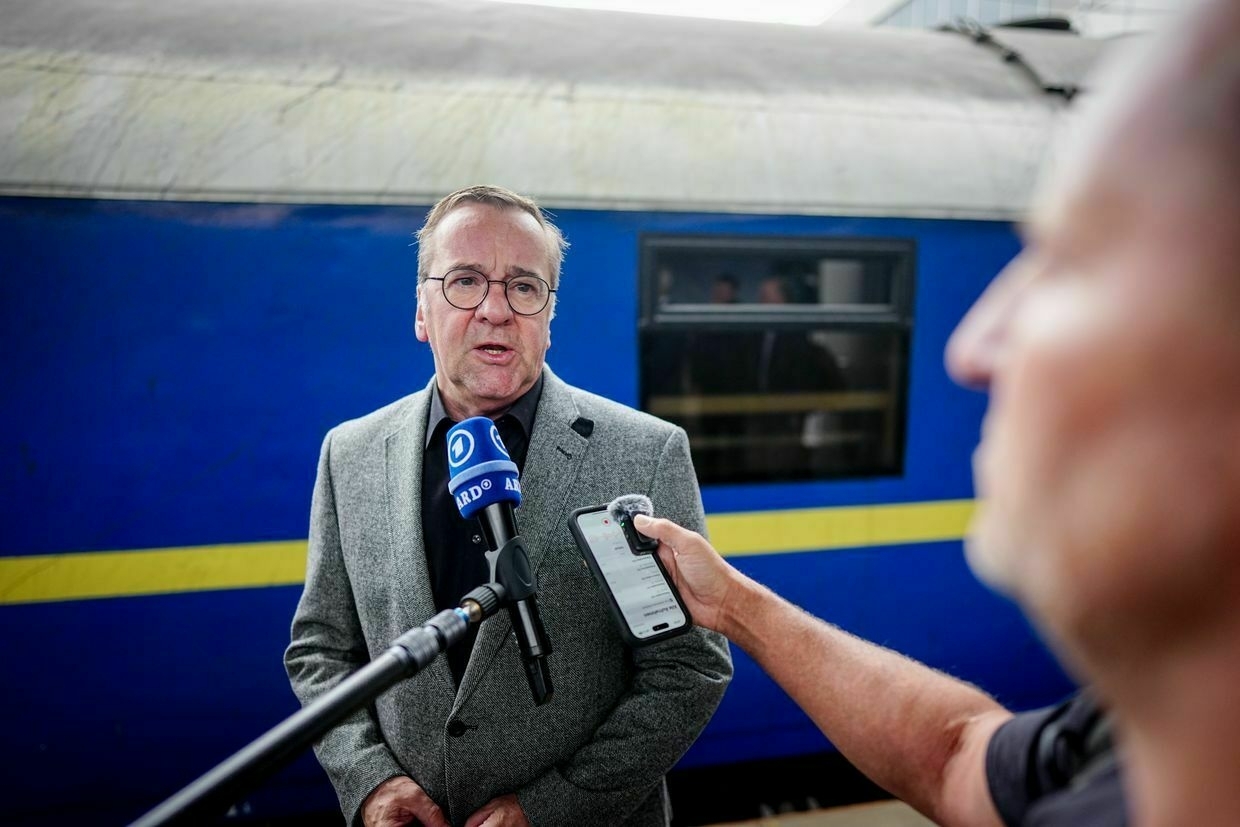
Editor’s note: This is a developing story and is being updated.
German Defense Minister Boris Pistorius arrived in Kyiv on June 12 to meet Ukrainian leaders and discuss future defense support, DPA news agency reported.
The visit marks Pistorius’s first official trip to Ukraine as a minister in Chancellor Friedrich Merz’s new German government.
During former Chancellor Olaf Scholz’s tenure, Pistorius made several visits to the war-torn country and played a key role in establishing Germany as Ukraine’s top European military donor.
-
Zelensky holds first meeting with Romania's new president Dan
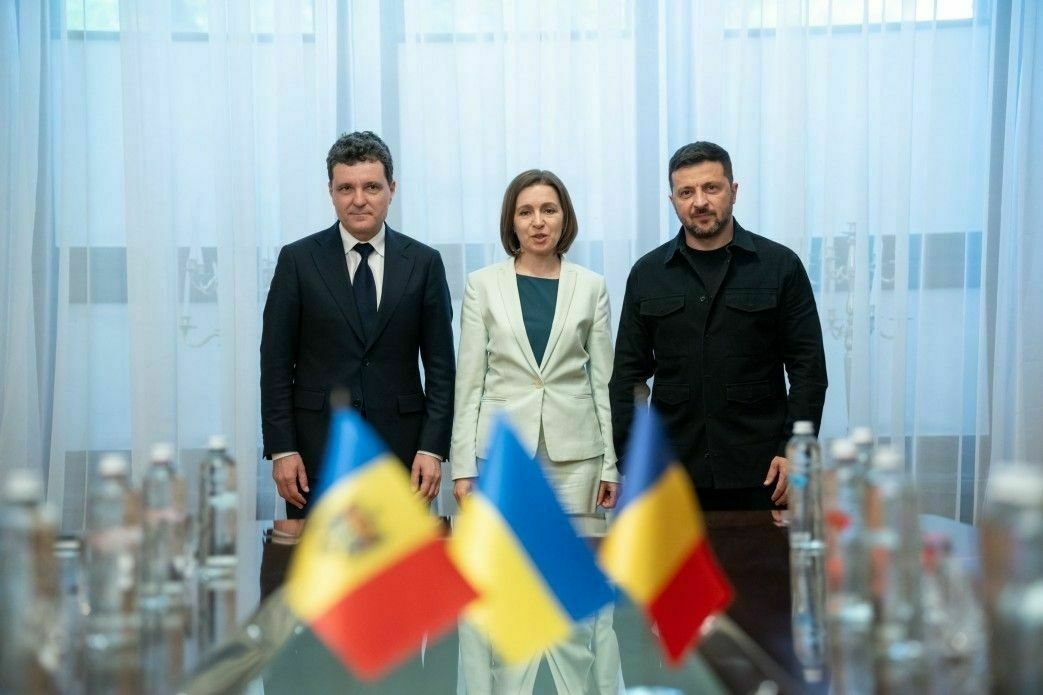
President Volodymyr Zelensky hosted a trilateral meeting with Moldovan President Maia Sandu and newly elected Romanian President Nicusor Dan, the first such meeting since Dan’s inauguration last month, Ukraine’s Presidential Office announced on June 11.
The talks focused on strengthening coordination between the countries amid rising threats from Russia’s ongoing war and hybrid operations across the Black Sea region, according to a statement.
The meeting took place on the sidelines of the Ukraine-Southeastern Europe summit held in the Black Sea port city of Odesa.
Ukraine proposed the appointment of foreign ministry-level coordinators to maintain permanent contact among the three countries.
The leaders discussed regional and cybersecurity, defense cooperation, European integration, sanctions against Russia, and support for Moldova, whose stability was described as vital for the broader region.
They also addressed joint infrastructure projects, including the construction of a cross-border highway and improvements to rail connections between Ukraine, Moldova, and Romania.
Special attention was given to defending against Russian hybrid threats and cyberattacks, which Ukraine says have intensified across Black Sea states.
Romania’s new president, Nicusor Dan, took office on May 26 after winning the May 18 presidential election against a far-right, anti-Ukraine opponent, George Simion. His victory is widely seen as a boost for Ukraine-Romania relations and for continued support of Kyiv’s pro-European path.
Zelensky emphasized that Ukraine and Moldova must remain united on their path toward EU membership, warning against any attempts to divide the countries during negotiations.
Both countries were granted EU membership candidate status in 2022 and launched the accession talks two years later.
Romania’s new president faces daunting challenges after surprise victory over far-right upstartThere was a wave of euphoria and relief across Europe following the election of pro-European liberal Nicusor Dan as Romania’s new president. “For Ukraine — as a neighbour and friend — it is important to have Romania as a reliable partner. And we are confident we will,” said President Volodymyr ZelenskyThe Kyiv IndependentPaula Erizanu
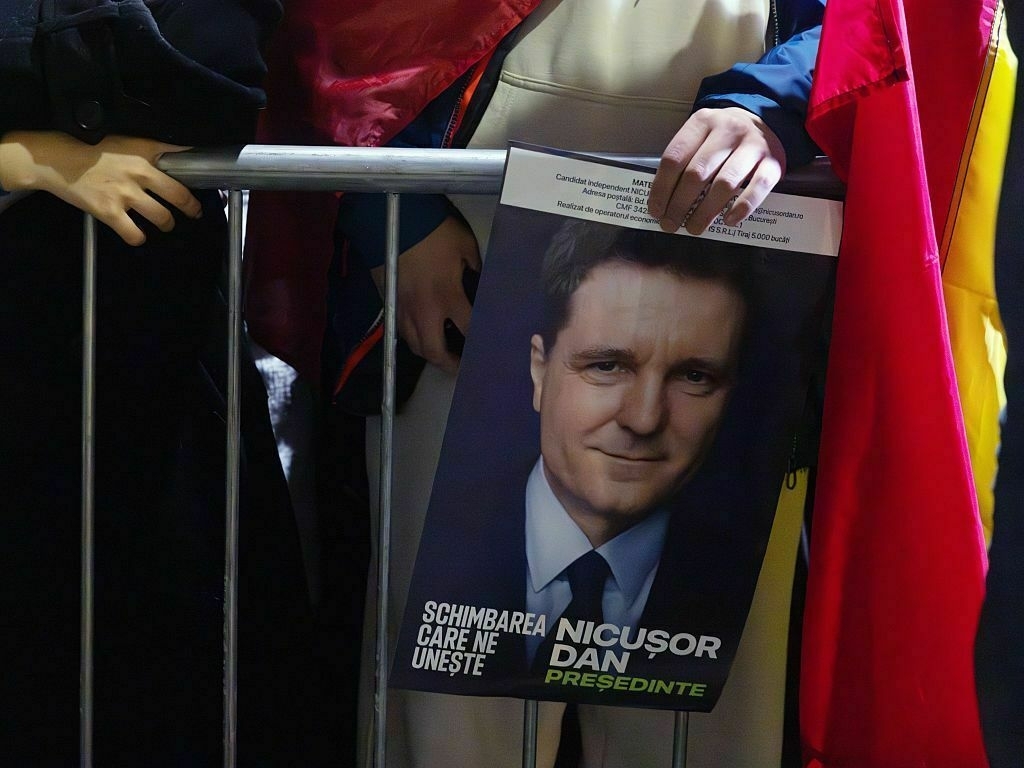
-
Rubio congratulates Russian people on Russia Day
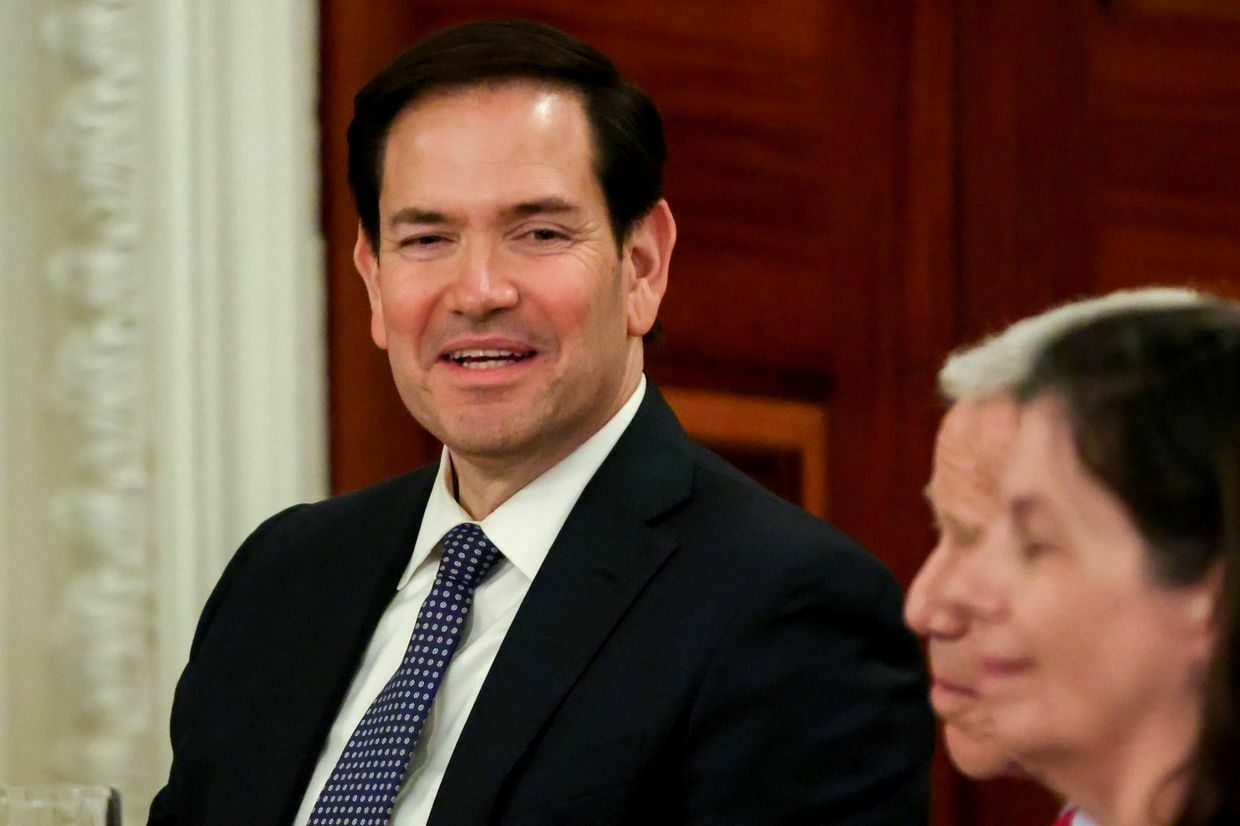
U.S. Secretary of State Marco Rubio congratulated the Russian people on June 12, Russia’s National Day, and expressed a desire for “constructive engagement” to bring peace to Ukraine.
“On behalf of the American people, I want to congratulate the Russian people on Russia Day,” Rubio said in a statement published on the State Department’s website.
“The United States remains committed to supporting the Russian people as they continue to build on their aspirations for a brighter future."
After taking office in January, the new U.S. administration took a sharp break from ex-President Joe Biden’s policy on Ukraine and Russia.
U.S. President Donald Trump’s team has sought to broker a peace deal between Kyiv and Moscow while being reluctant to commit additional funds or military aid to the besieged country.
“It is our hope that peace will foster more mutually beneficial relations between our countries,” Rubio said.
Washington has also signaled an intent to restore ties with Moscow, with both sides discussing venues for possible economic cooperation.
While the Biden administration imposed massive sanctions on Russia and sought to isolate Russian President Vladimir Putin on the international stage, Trump has often boasted about his close ties with the Russian leader and refused to impose additional economic restrictions.
Russia Day, also known as the Day of Adoption of the Declaration of State Sovereignty of the Russian Soviet Federative Socialist Republic, has been celebrated annually on June 12 since 1992.
The day commemorates the declaration of Russia’s state sovereignty from the Soviet Union, marking the start of a constitutional reform that eventually led to the breakdown of the USSR.
Putin’s suspected daughter found working in anti-war galleries in ParisNastya Rodionova, a Russian writer and artist who has been based in Paris since 2022, had only met gallery manager Luiza Rozova in passing at events before she learned who the 22-year-old’s parents were. Described by a number of people as a “very nice and well-mannered girl,” Rozova isThe Kyiv IndependentKate Tsurkan
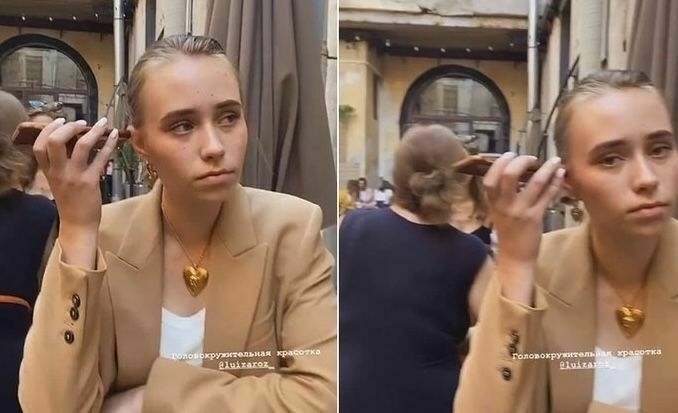
-
General Staff: Russia has lost 1,000,340 troops in Ukraine since Feb. 24, 2022
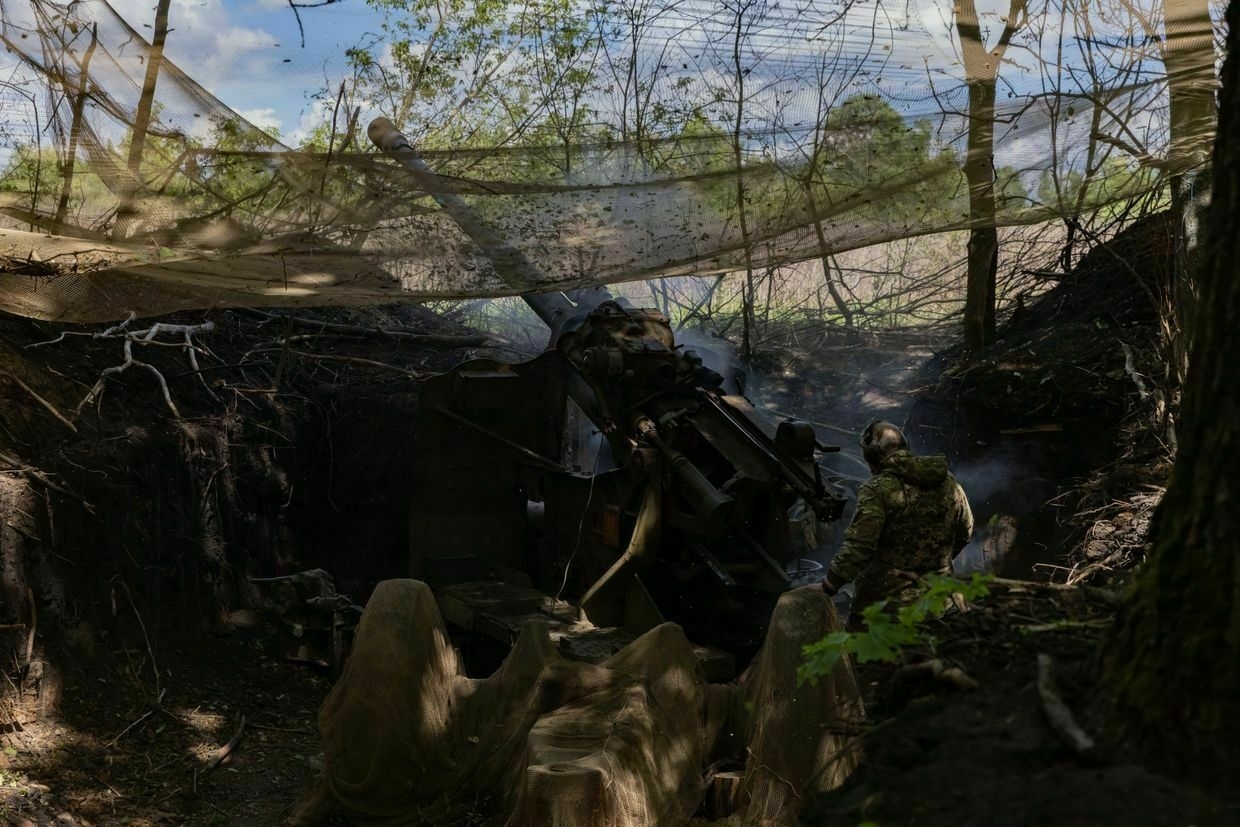
Russia has lost 1,000,340 troops in Ukraine since the beginning of its full-scale invasion on Feb. 24, 2022, the General Staff of Ukraine’s Armed Forces reported on June 12.
The number includes 1,140 casualties that Russian forces suffered just over the past day. It marks the first time since the outbreak of the full-scale war that Russia’s reported casualties crossed 1 million.
According to the report, Russia has also lost 10,933 tanks, 22,786 armored fighting vehicles, 51,579 vehicles and fuel tanks, 29,063 artillery systems, 1,413 multiple launch rocket systems, 1,184 air defense systems, 416 airplanes, 337 helicopters, 40,435 drones, 3,337 cruise missiles, 28 ships and boats, and one submarine.
Ukraine bracing for ‘painful’ reduction in US military aid after Hegseth announces cutsEditor’s note: For security reasons, the real names of the soldiers mentioned in this story have not been used. A reduction in U.S. military aid to Ukraine would be “painful” and could have potentially “dire consequences” for the global order, Ukrainian lawmakers and soldiers have told the Kyiv Independent.The Kyiv IndependentKateryna Hodunova
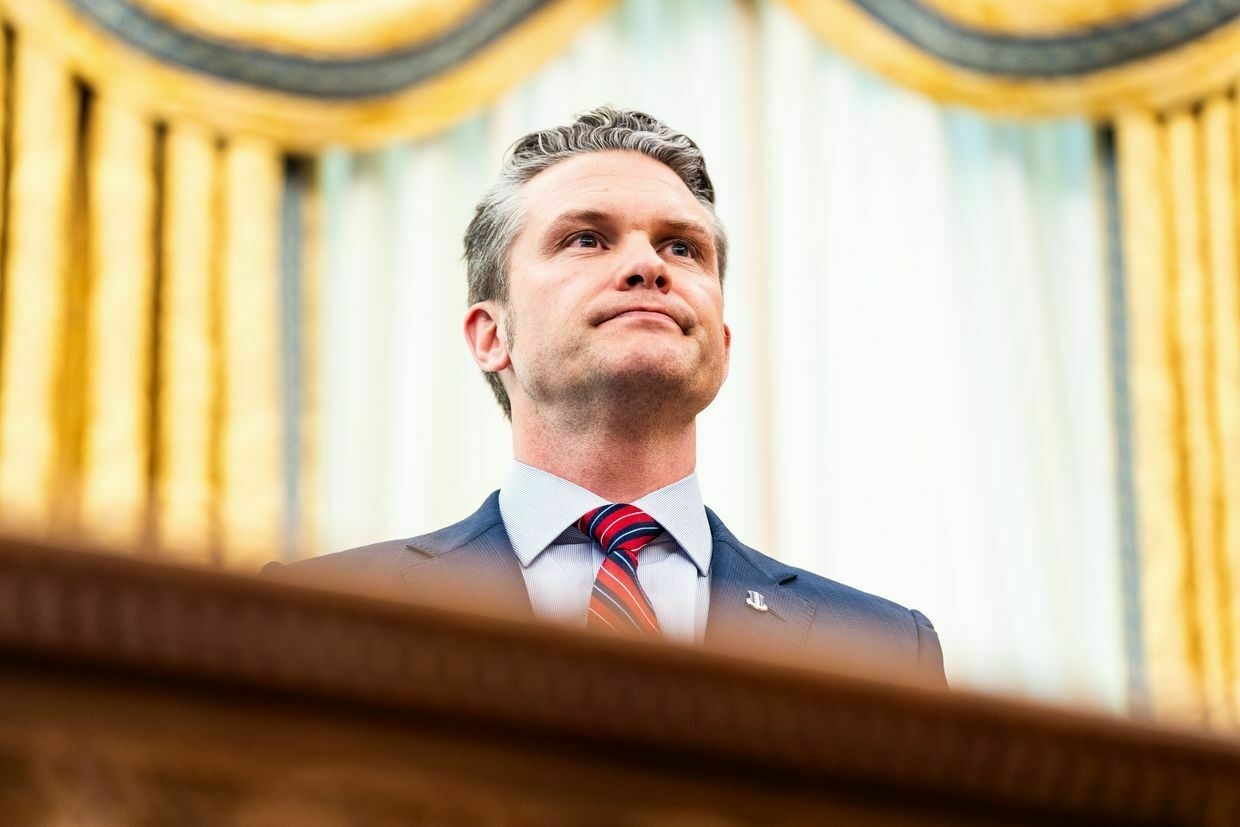
-
Partisan group destroys Russian military truck in occupied Ukraine, allegedly killing soldiers, Atesh claims
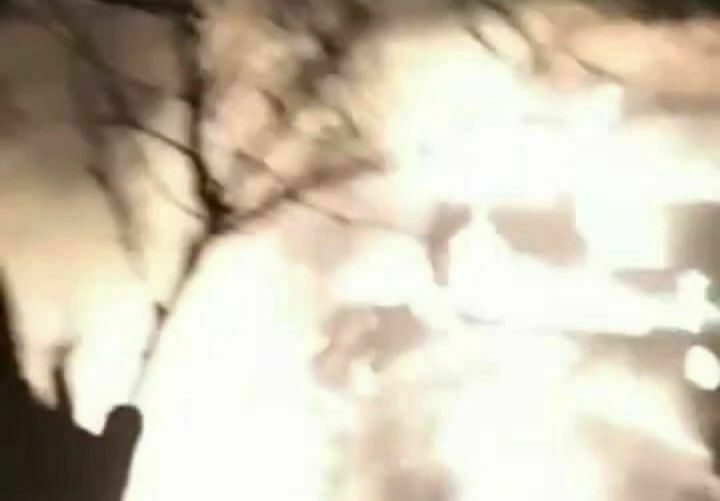
A Russian Ural military truck was destroyed, allegedly killing “several occupiers” near occupied Melitopol overnight on June 12, the pro-Ukrainian Atesh partisan group claimed.
"(O)ur fighters set fire to an army Ural truck, and several occupiers on duty now remain in the fields of Zaporizhzhia forever," the Atesh group said in a post to Telegram.
On June 10, the Atesh partisan group claimed they destroyed a vehicle used by drone operators in the Russian 64th Separate Motorized Rifle Brigade in occupied Melitopol.
The group says the June 12 attack will mark the start of Russia’s annual national holiday.
“A gift for Russia Day: Atesh agents carried out sabotage in the Melitopol region… Atesh agents conveyed ‘congratulations’ to the occupiers: one of our fighters set fire to an army Ural truck,” the group said.
The Kyiv Independent could not verify the group’s claims.
The Atesh partisan group regularly conducts sabotage attacks in Russia and Ukraine’s Russian-occupied territories.
America’s weak strongmanOver the past two months, financial investors have hit upon a new trading strategy, based on a simple rule: TACO — Trump Always Chickens Out. America’s president threatens to slap massive import tariffs on friends and foes alike, or to remove the Federal Reserve chair, only to back down whenThe Kyiv IndependentTimothy Snyder
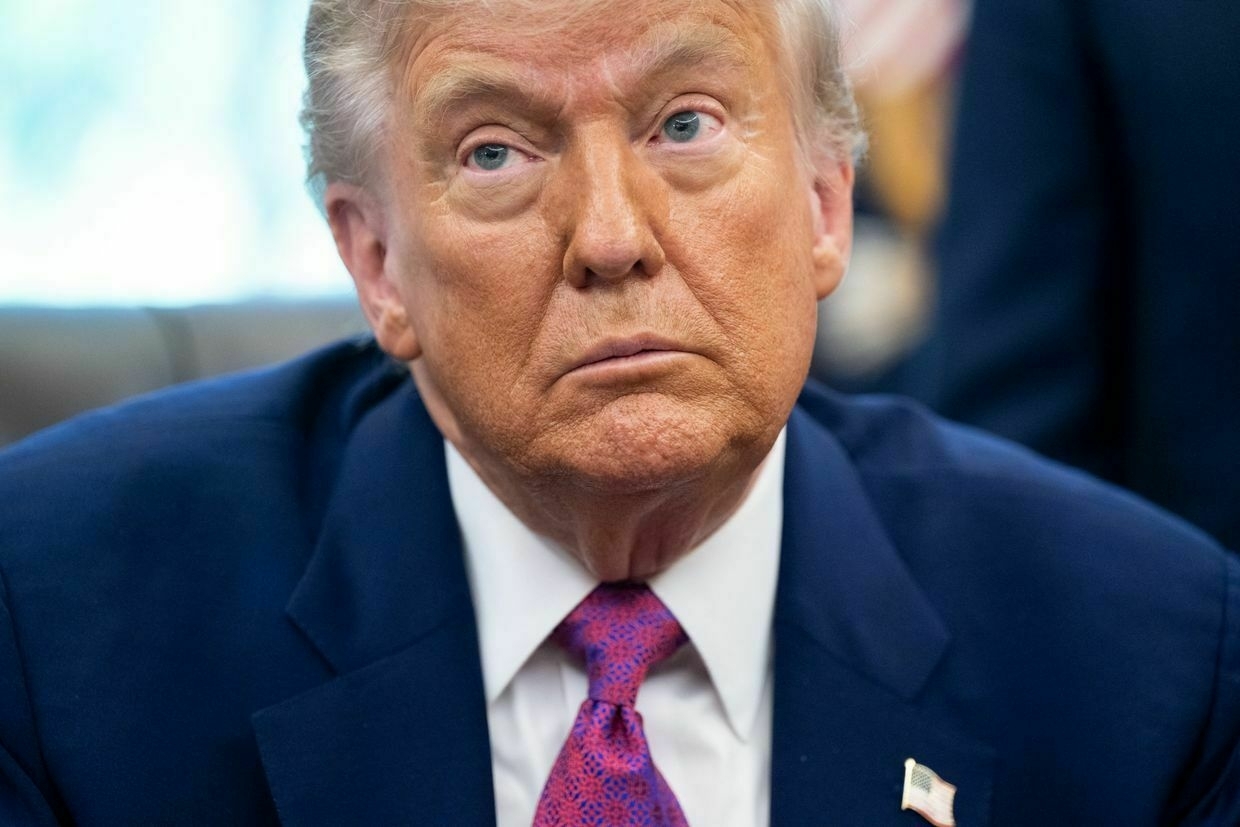
-
EU could impose Russian oil price cap without US support, Kallas says
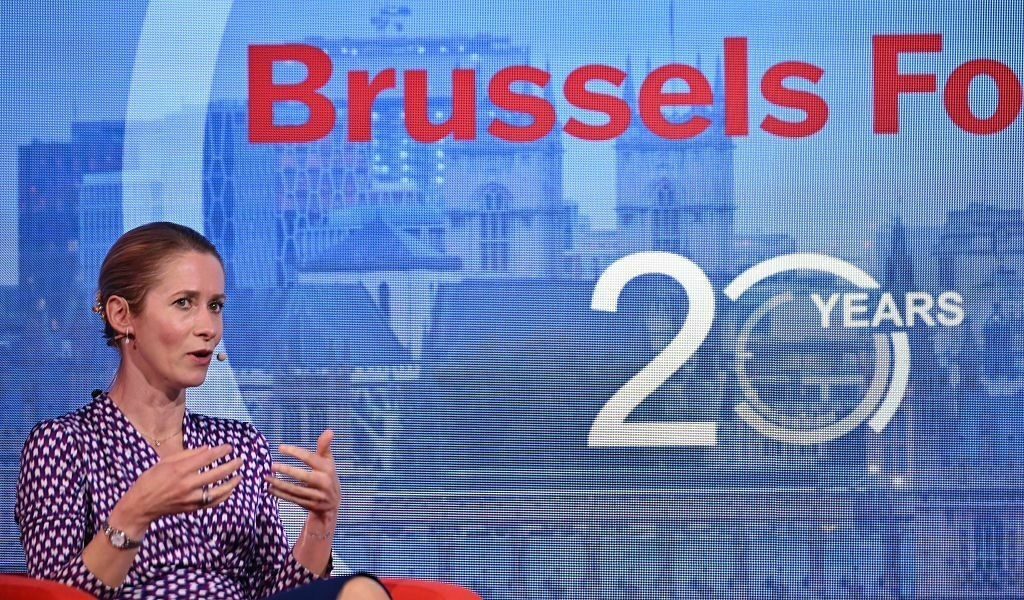
The European Union can impose an additional price cap on Russian oil without U.S. support, EU High Representative Kaja Kallas said at the Brussels Forum on June 11.
“If you think about the oil going through the channels, it’s mostly Europe, it’s via the Baltic Sea, it’s via the Black Sea. So even if the Americans are not on board, we can still do it and have an impact,” Kallas said.
The EU’s 17th package of sanctions against Russia came into effect on May 20. The bloc is already working on its next wave of sanctions.
The 18th EU sanctions package will include additional restrictions on energy, banking, oil, and other areas, European Commission President Ursula von der Leyen announced on June 10.
“What the intelligence tells is that, now the sanctions will (harder hit) the supply chains of Russia needed to really fund this war,” Kallas said.
“Of course, it is important the United States… is together with us, and we have been operating together for quite some time,” she said.
Kallas noted the Group of Seven (G7) oil price cap was previously agreed upon to be 5% below the market price.
“It is important, of course, what we do together, but it is also equally important for us what we do alone, because we alone are also a player,” Kallas said.
Kallas noted the EU is still an ally to the U.S., but recognized the dynamic between the two powers is changing.
“We still value the relationship… I think with the Americans we are not growing apart, but growing up in our relationships,” Kallas said.
The upcoming G7 summit will take place in Alberta, Canada. A wide range of topics, including Russia’s war against Ukraine, are expected to be discussed at the annual event.
President Volodymyr Zelensky previously confirmed he would be attending the G7 summit after receiving an invitation from Canadian Prime Minister Mark Carney.
‘Ukrainians have been stripped of illusion of control’ — Filmmaker Kateryna Gornostai on Russia’s war, cinema and reclaiming the narrativeWhen Russia launched its full-scale invasion of Ukraine, film director Kateryna Gornostai found herself questioning whether she would continue working. “I had this feeling that life — at least professionally — had come to an end,” she says. “Who needed directors or screenwriters, then? At most, volunteers were needed, but hardly anyoneThe Kyiv IndependentKateryna Denisova
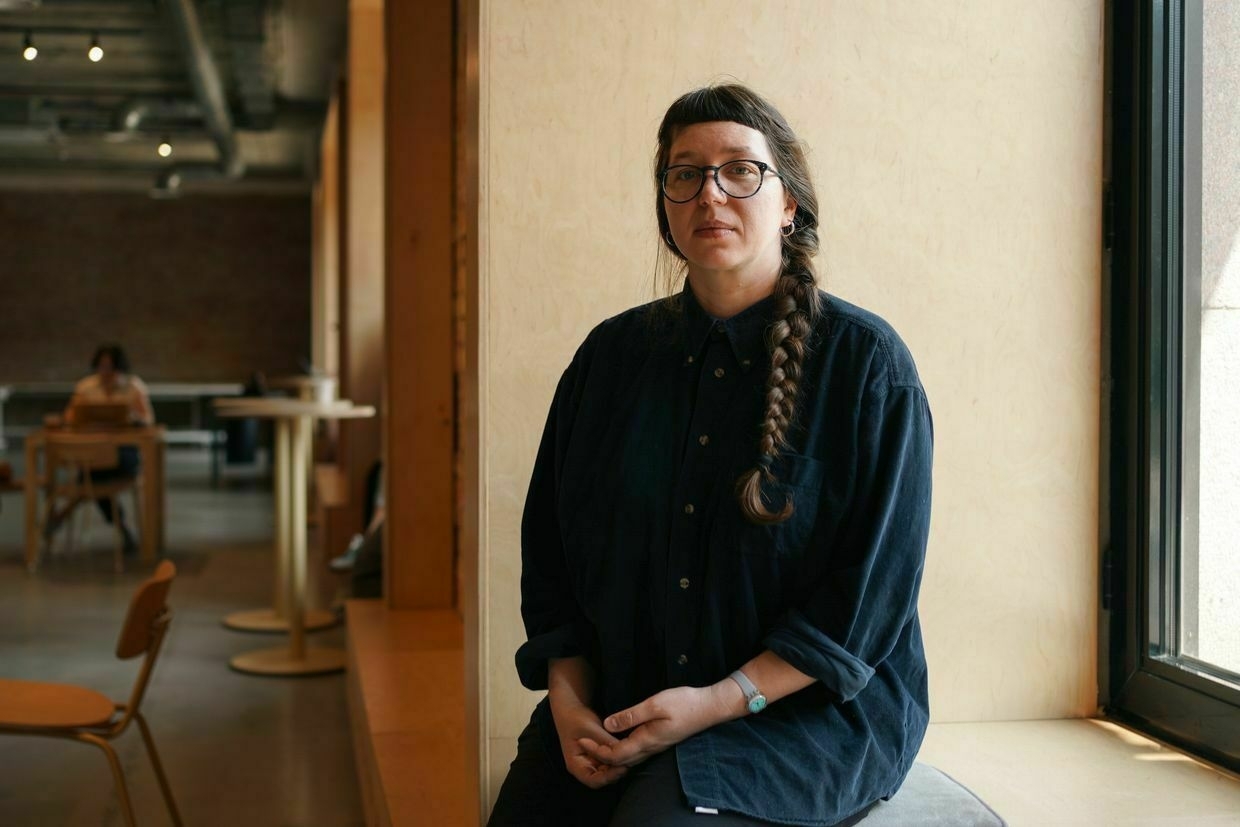
-
12 injured in Russian drone attack on Kharkiv, day after fatal drone bombardment
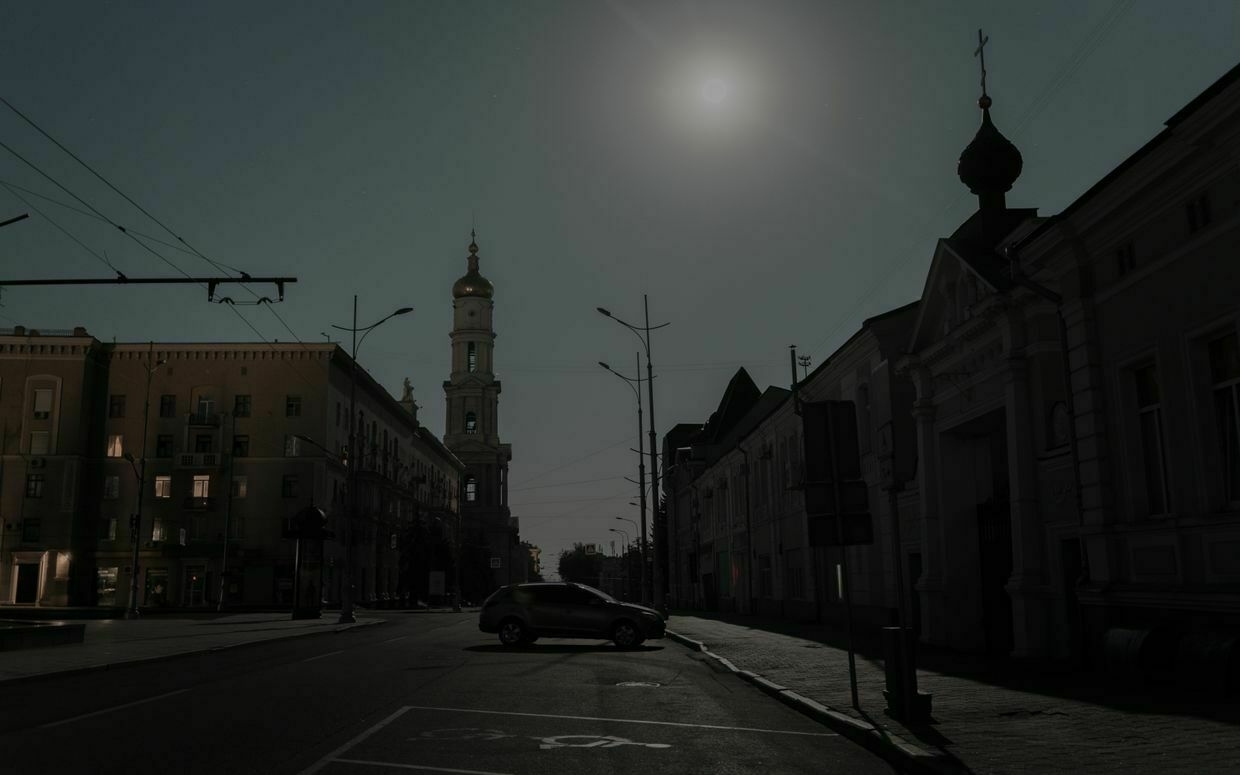
Editor’s note: This is a developing story and is being updated.
Twelve are injured, including 4 children, as a result of a Russian drone attack on Kharkiv overnight on June 12.
Russia carried out 11 strikes on the city, a 12th drone strike did not detonate, Kharkiv Mayor Ihor Terekhov said in a post to Telegram.
“Residential areas, educational institutions, kindergartens, and infrastructure were hit by shelling. Dozens of cars were damaged, windows in schools and houses were broken,” he said.
Just a day prior, on June 11, a Russian mass drone attack on Kharkiv killed three people and injured at least 64 others, including nine children.
“An unexploded UAV was discovered on the roof of a warehouse,” regional Governor Oleh Syniehubov said.
Several fires broke out throughout the city as a result of the Russian drone attack.
“Civilian cars caught fire after a (drone) hit a residential high-rise building. The facade of the high-rise building was also damaged,” Syniehubov reported.
The grounds of an educational institution were hit in the Shevchenkivskyi district, causing a fire to break out, Syniehubov said.
Russia regularly strikes civilian infrastructure as it continues to wage its war against Ukraine.
On June 10, Russia conducted drone and missile attacks on Kyiv and Odesa. Three were killed and 12 were injured.
Ukraine bracing for ‘painful’ reduction in US military aid after Hegseth announces cutsEditor’s note: For security reasons, the real names of the soldiers mentioned in this story have not been used. A reduction in U.S. military aid to Ukraine would be “painful” and could have potentially “dire consequences” for the global order, Ukrainian lawmakers and soldiers have told the Kyiv Independent.The Kyiv IndependentKateryna Hodunova
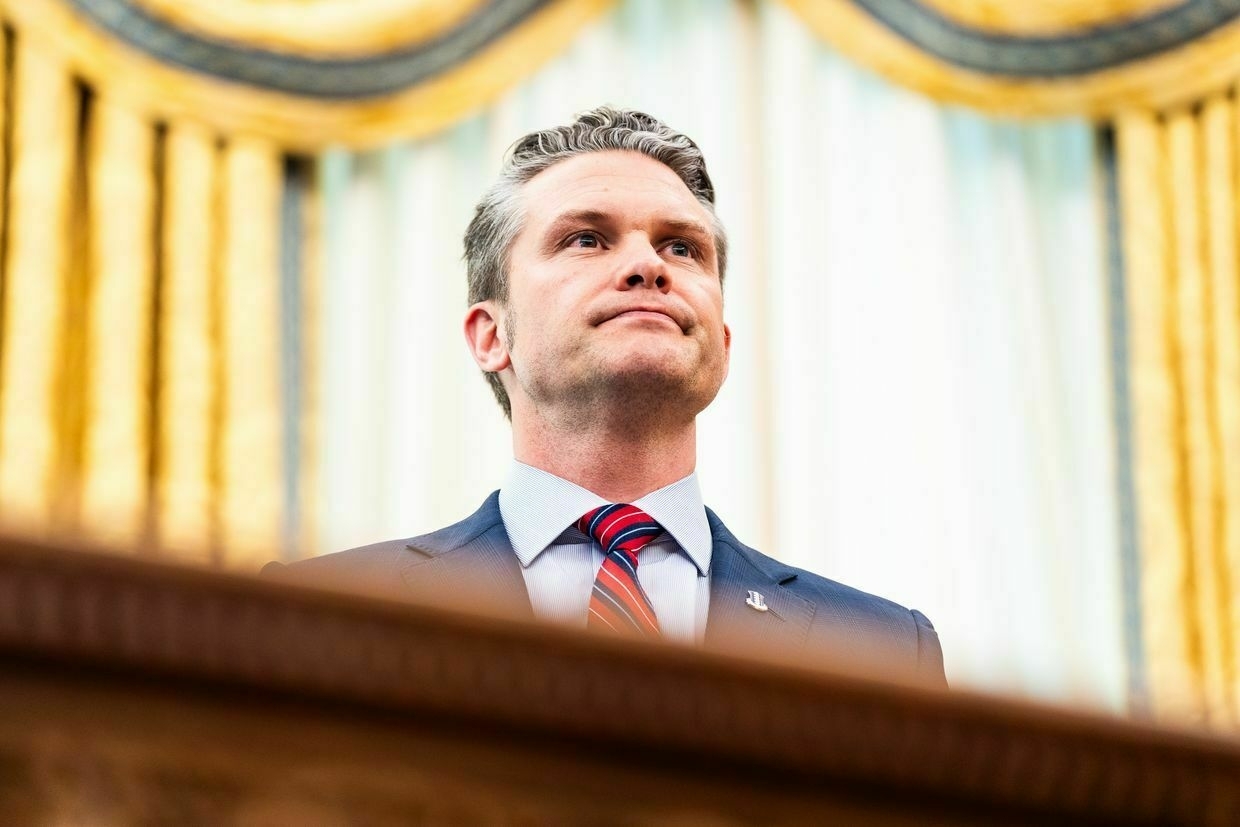
-
Russia boasts world's top nuclear force, must improve ground forces, Putin claims
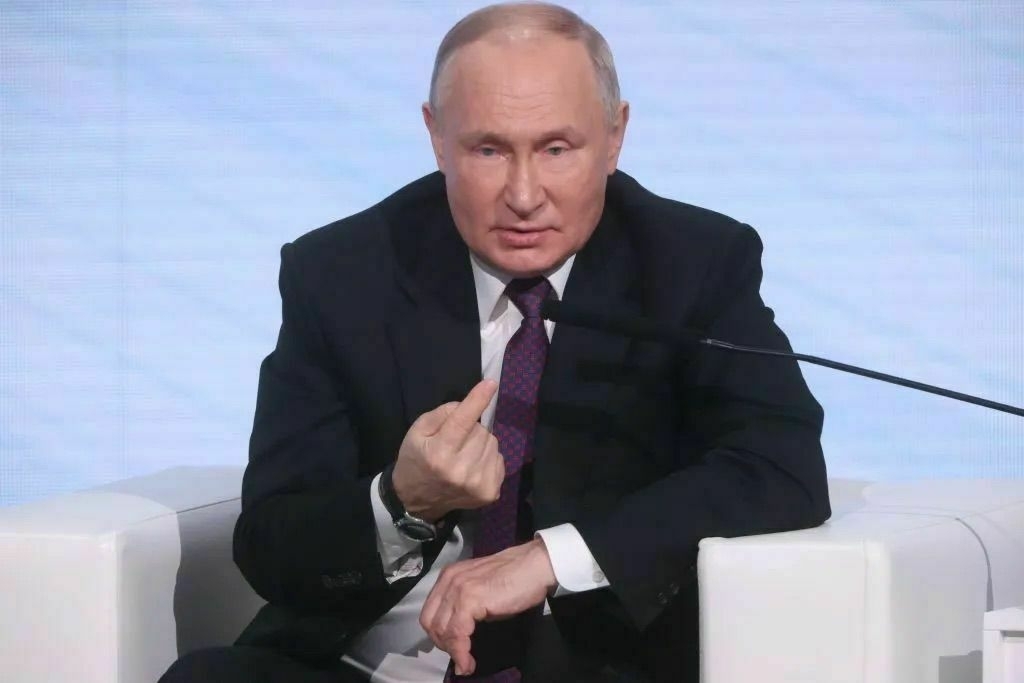
Russian President Vladimir Putin claimed that Moscow possesses the world’s most advanced nuclear systems but must significantly strengthen its ground forces, Russian state media reported on June 11.
As Russia continues its war against Ukraine, Moscow has increased investment in its military. Russian defense spending has reached its highest level since the Cold War at 6.3% of Gross Domestic Product (GDP).
Putin claimed that Russia’s nuclear triad has the highest share of new equipment among nuclear powers.
“Currently, the share of modern weapons and equipment in the strategic nuclear forces is already 95%. This is a good indicator, in fact, it is the highest of all nuclear powers in the world,” Russian state media reported Putin saying.
Putin then called for Russia’s ground forces to be improved as quickly as possible.
“The dominant force in conducting modern military operations of any scale and intensity remains the ground forces. And it is important to increase their combat capabilities in the shortest possible time,” he said.
Russia began its full-scale invasion of Ukraine in February 2022. Russia first began its armed aggression against Ukraine in 2014, when its proxies occupied territory in eastern Ukraine and Russia annexed Crimea.
Russia regularly strikes civilian infrastructure in its ongoing war against Ukraine. On June 11, a Russian drone attack on Kharkiv killed at least three people and injured 64 others.
Putin’s suspected daughter found working in anti-war galleries in ParisNastya Rodionova, a Russian writer and artist who has been based in Paris since 2022, had only met gallery manager Luiza Rozova in passing at events before she learned who the 22-year-old’s parents were. Described by a number of people as a “very nice and well-mannered girl,” Rozova isThe Kyiv IndependentKate Tsurkan
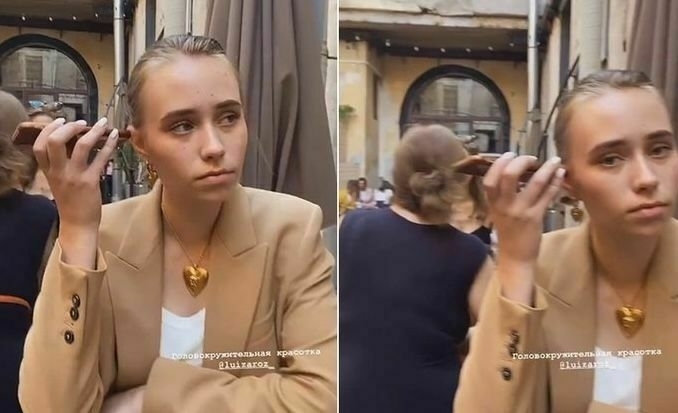
-
Republicans press Pentagon chief over Trump’s plan to end Russia's war against Ukraine, Politico reports

At a Senate budget hearing on June 11, Republican senators fiercely criticized U.S. Defense Secretary Pete Hegseth over the Trump administration’s effort to end the Ukraine war through negotiations involving Russia.
The session revealed deep divisions within the GOP on U.S. foreign policy, as lawmakers clashed over the administration’s strategic direction, Politico reports. Leading the pushback was Sen. Mitch McConnell of Kentucky, one of three Republicans who voted against Hegseth’s confirmation, who warned, “America’s reputation is on the line.”
McConnell, now chair of the panel overseeing defense funding, issued some of his strongest public criticism yet, questioning whether the United States would continue defending democratic allies against authoritarian threats.
He contrasted his stance — rooted in a Reagan-era commitment to global leadership — with Hegseth’s “America First” approach favored by many Trump supporters. “We don’t want a headline at the end of this conflict that says Russia wins and America loses,” McConnell said.
When asked who the aggressor in the three-year-old war is, Hegseth responded, “Russia is the aggressor.” But he avoided directly stating which side the U.S. wants to see win, instead emphasizing that President Trump is committed to achieving peace. Hegseth shifted blame to the Biden and Obama administrations, arguing that slow responses during their terms allowed Putin to seize Crimea and invade Ukraine. “Vladimir Putin knows that President Trump is strong,” he said, suggesting a negotiated peace would bolster America’s global position.
Sen. Lindsey Graham, a prominent Trump ally, questioned whether Putin would stop his territorial ambitions if he gained ground in Ukraine. Joint Chiefs Chair Gen. Dan Caine said he did not believe Putin would stop. Hegseth, however, responded, “It remains to be seen.” Graham rebuked that answer, saying, “This is the ‘30s all over. It doesn’t remain to be seen."
Democrats also raised concerns. Sen. Chris Coons of Delaware criticized the administration for omitting Ukraine aid in its 2026 budget request and warned against compromising too much for the sake of peace. “We cannot abandon Ukraine,” he said.
Hegseth defended the administration’s strategy, calling a negotiated settlement a show of strength. “The alternative of endless war that is largely funded by the United States and fought by Ukrainians… does not make sense strategically,” he said.
America’s weak strongmanOver the past two months, financial investors have hit upon a new trading strategy, based on a simple rule: TACO — Trump Always Chickens Out. America’s president threatens to slap massive import tariffs on friends and foes alike, or to remove the Federal Reserve chair, only to back down whenThe Kyiv IndependentTimothy Snyder
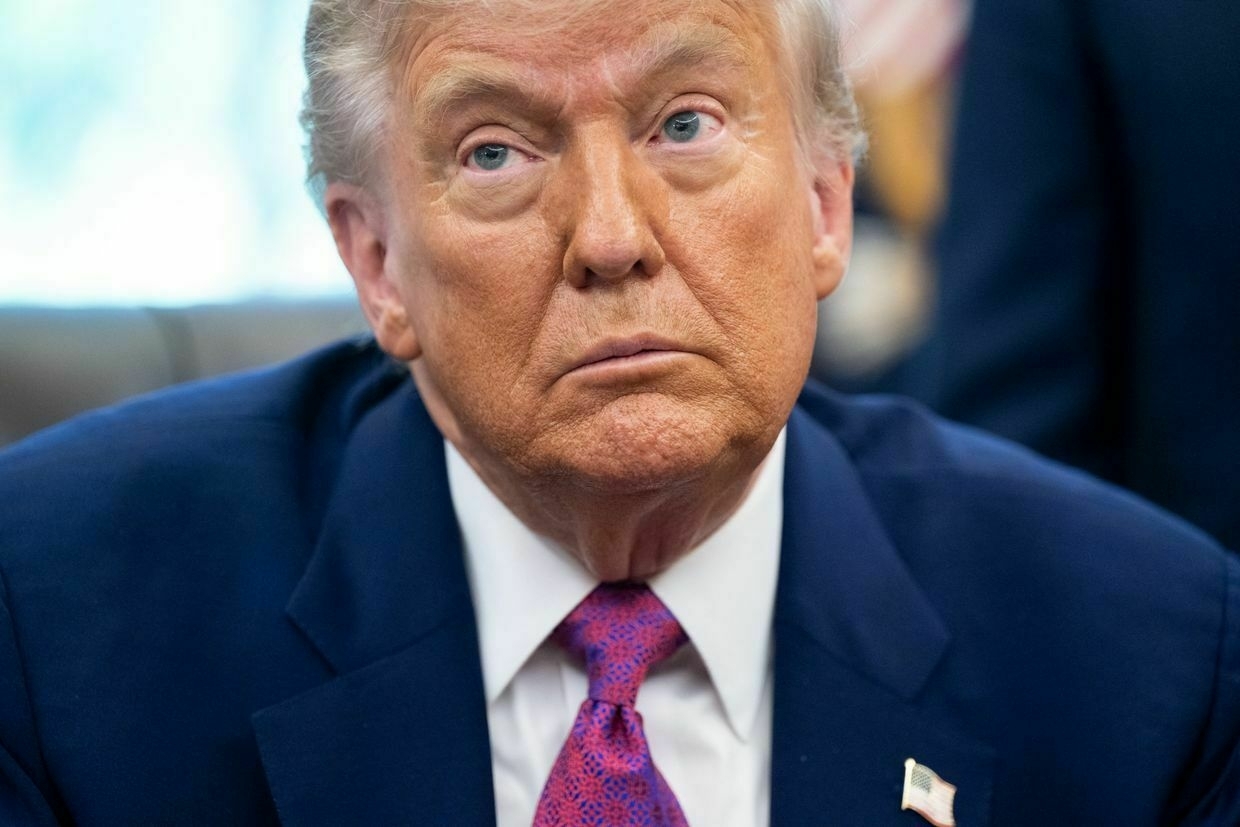
-
We must keep supporting! Kaptur urges the US not to turn away from Ukraine #shorts
-
Drapatyi ends tenure as Ground Forces chief, says he leaves with 'clear conscience'
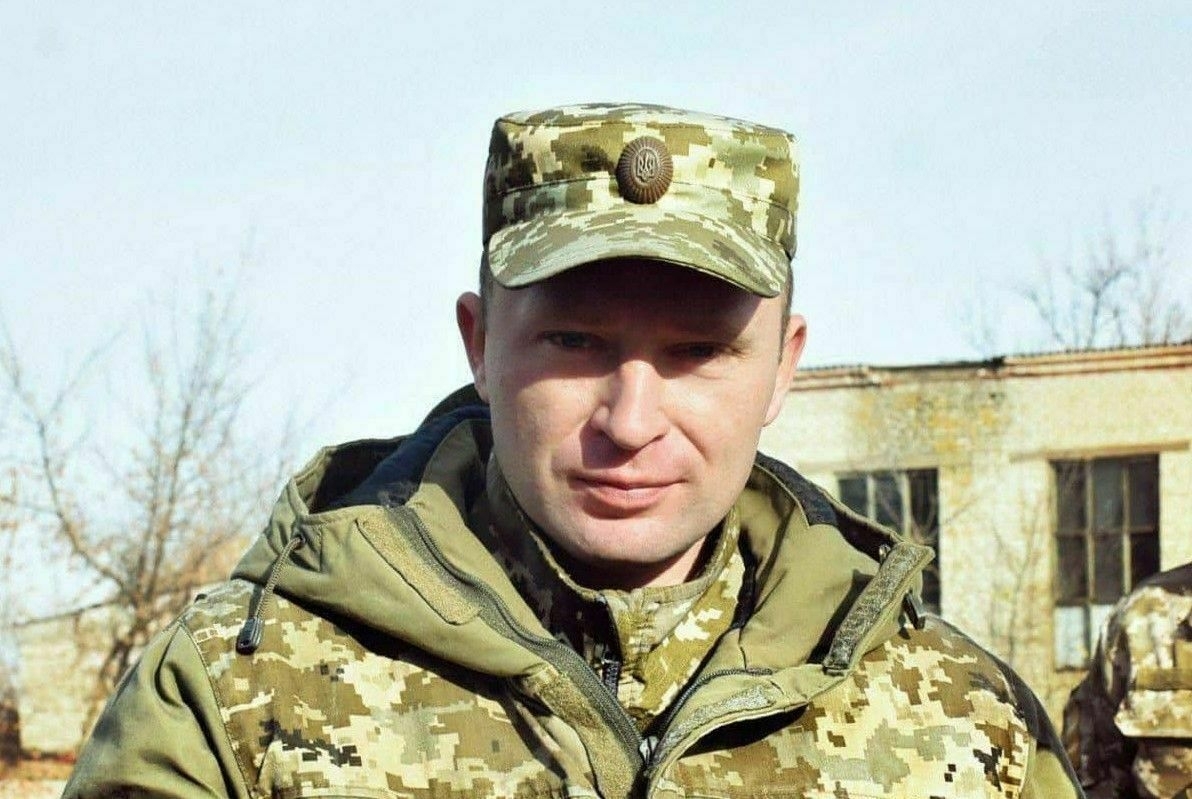
Mykhailo Drapatyi said on June 11 that he had concluded his six-month tenure as commander of Ukraine’s Ground Forces, summarizing his accomplishments and stating that he is leaving with “a clear conscience."
Drapatyi submitted his resignation on June 1, following a deadly Russian missile strike that killed at least 12 Ukrainian soldiers at a training camp in Dnipropetrovsk Oblast, saying the victims were young recruits who “should have learned, lived, and fought — not died."
President Volodymyr Zelensky appointed him as commander of the Joint Forces on June 3, two days after the incident. The Ground Forces said the same day that an investigation was underway and pledged accountability if negligence or misconduct is found.
In his statement, Drapatyi described the state of the Ground Forces at the time of his appointment on Nov. 29, 2024 as mired in “managerial stagnation,” defined by fear, lack of initiative, and detachment from frontline units.
“Systemic abuse, personnel decisions based on connections, low internal organization,” he wrote. “The command is gradually shifting from a culture of fear to a culture of responsibility."
Drapatyi said he had replaced over half of the Ground Forces' leadership in key functions and had begun reforms aimed at decentralization, accountability, and professionalism.
Under his leadership, the military launched a revamp of recruitment centers, aiming to eliminate corruption and increase transparency in mobilization.
Drapatyi also oversaw a partial overhaul of the army’s training and staffing systems. New leadership was introduced in the drone, cyber, and electronic warfare units amid a wave of broader reforms.
“Decisions are made not on the basis of status or loyalty, but on the basis of analysis, results, and respect for subordinates,” Drapatyi said. “Grassroots initiatives ceased to be a threat and began to become a resource.”
Zelensky said on June 3 that Drapatyi’s new role would focus “exclusively on combat issues."
Ukraine’s SBU releases fresh video of Operation Spiderweb, teases ‘new surprises’“The SBU is hitting and will hit (Russia) where it considers itself unreachable!” SBU chief Vasyl Maliuk said. “We are working on new surprises, no less painful than the Operation Spiderweb.”The Kyiv IndependentMartin Fornusek
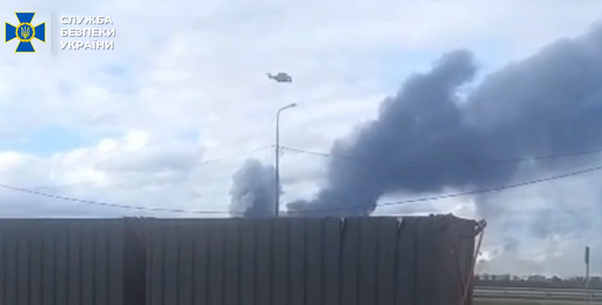
-
No chance left for Russians! Masterful operations by Ukrainian Forces #shorts
-
Paris art scene’s unforeseen dilemma: Can you employ Putin’s suspected daughter?
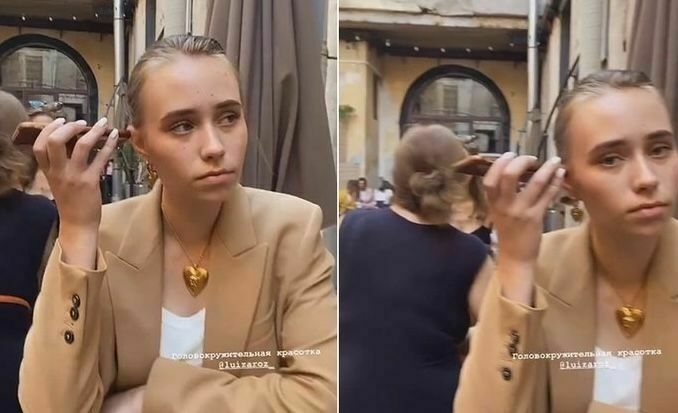
Nastya Rodionova, a Russian writer and artist who has been based in Paris since 2022, had only met gallery manager Luiza Rozova in passing at events before she learned who the 22-year-old’s parents were.Described by a number of people as a “very nice and well-mannered girl,” Rozova is the daughter of a Russian woman named Svetlana Krivonogikh — and, according to investigative journalists, Russian President Vladimir Putin.
After learning about Rozova’s family background, Rodionova took to social media on June 4 to share it, highlighting the fact that the galleries where Rozova works primarily showcase Russian and Ukrainian anti-war art.
The post quickly went viral — but the reactions were divided. Some members of the Russian emigre community argued Rozova had no control over who her parents are and it shouldn’t be held against her.
Others agreed it was ethically questionable that a family member of the Kremlin leader worked in anti-war art galleries as Russia was waging war against Ukraine, and praised the artist for revealing it.
“We are talking about artists (showcased in the galleries) who fled the regime,” Rodionova told the Kyiv Independent.
“Many of them are in danger. They shared all their personal information with the gallery staff without knowing who works there — it upset them very much (to learn about her).”
The Kyiv Independent reached out to Rozova for comment through her employer. He acknowledged that he had passed along the request for comment and “if she considers it possible to answer” she would do so.
As of publication, Rozova has not replied.
Uncanny resemblanceIn most of Rozova’s photos that were posted on social media or taken by media outlets for interviews, her face is deliberately cropped or turned away — a subtle yet telling choice, which some believe is due to her uncanny resemblance to the Russian leader.
In the few photos of Rozova where her face is fully visible, she does bear unmistakable resemblance to Putin.
“Listen, judging by (Putin’s) younger photos — probably, yes, I do look like him. But as it turns out, there are actually a lot of people who resemble Vladimir Vladimirovich,” she told GQ Russia in 2021. In the interview, Rozova wasn’t directly asked whether she was related to the Russian leader.
Rozova first attracted international attention in 2020, when the independent Russian investigative outlet Proekt published an expose detailing the substantial wealth of her mother, Svetlana Krivonogikh, who at the time possessed over $100 million in assets.
Proekt’s investigation revealed Krivonogikh’s longstanding ties to Putin and noted that her daughter Rozova “bears an uncanny resemblance” to the Russian leader, fueling the widespread speculation about her parentage.
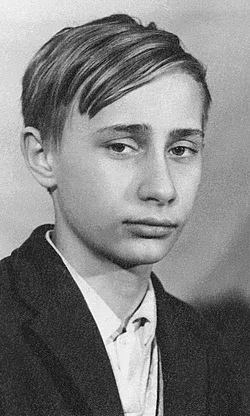

L: Russian President Vladimir Putin as a child, circa 1960s. (Wikimedia) R: A photo shows Luiza Rozova, who is widely alleged to be Russian President Vladimir Putin’s daughter. (X) In the rare instances that Rozova has granted media interviews since then, she has never outright acknowledged or denied that Putin is her father.
Dmitri Dolinski — director of the L Association, which oversees both Studio Albatros and the L Galerie where Rozova is employed — confirmed to Rodionova that Rozova’s mother is Krivonogikh, she said.
Krivonogikh was sanctioned by the U.K. in 2023 due to her stake in Bank Rossiya, which has, among other things, supported investments in Russian-occupied Crimea following the illegal annexation of 2014.
Why it mattersIn her original viral social media post, the Russian artist Rodionova stressed the importance of Studio Albatros and L Galerie as cultural spaces showcasing Russian and Ukrainian anti-war artists — and why that made the presence of the Kremlin leader’s alleged daughter there problematic.
“In the context of Russia’s ongoing war of aggression, people organizing any public events involving anti-war artists — and in some cases direct victims of the regime — must act with maximum transparency and sensitivity,” Rodionova wrote.
Rodionova previously exhibited her artwork with L Association but has chosen to no longer do so.
“We must know who we are working with and make informed decisions about whether we are okay with (exhibiting art there). My personal answer in this case is no.”
Given the Russian and Ukrainian artists’ outspoken anti-war positions, there is a potential risk associated with disclosing their personal information to L Association — particularly given the lack of clarity around Rozova’s ties to the Russian regime.
One artist who collaborated with the gallery had even welcomed Rozova into their home without knowing her family connections, Rodionova added.
When Rodionova first asked about Rozova’s background, Dolinski reportedly told her that he does not look into his employees’ families.
At the same time, Rodionova noted, it appears he hired Rozova while knowing who her mother was and the fact that her mother was already subject to U.K. sanctions.
Amid the ongoing controversy, the L Association appears to be standing behind Rozova.
“We regret that some voices have called for forms of stigmatization or ‘collective punishment,’ and we remind everyone that no one should be judged by their origins, birthplace, heritage, or any other criteria beyond their control. This is a red line we will not cross,” the organization wrote on Facebook on June 9, although they didn’t mention Rozova by name.
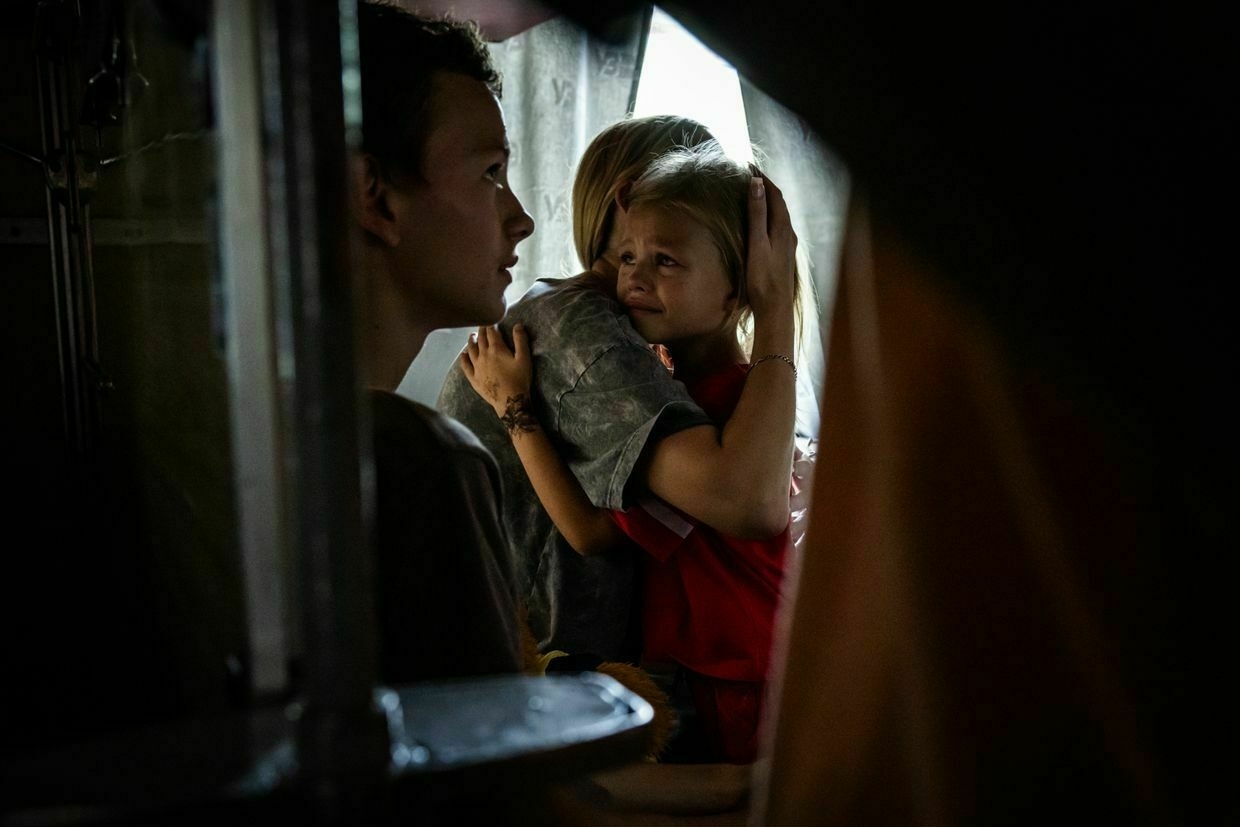
Dasha, 6, cries as she hugs her mother before boarding an evacuation train in Pokrovsk, Donetsk Oblast, Ukraine, on Aug. 22, 2024. (Ed Ram / The Washington Post via Getty Images) 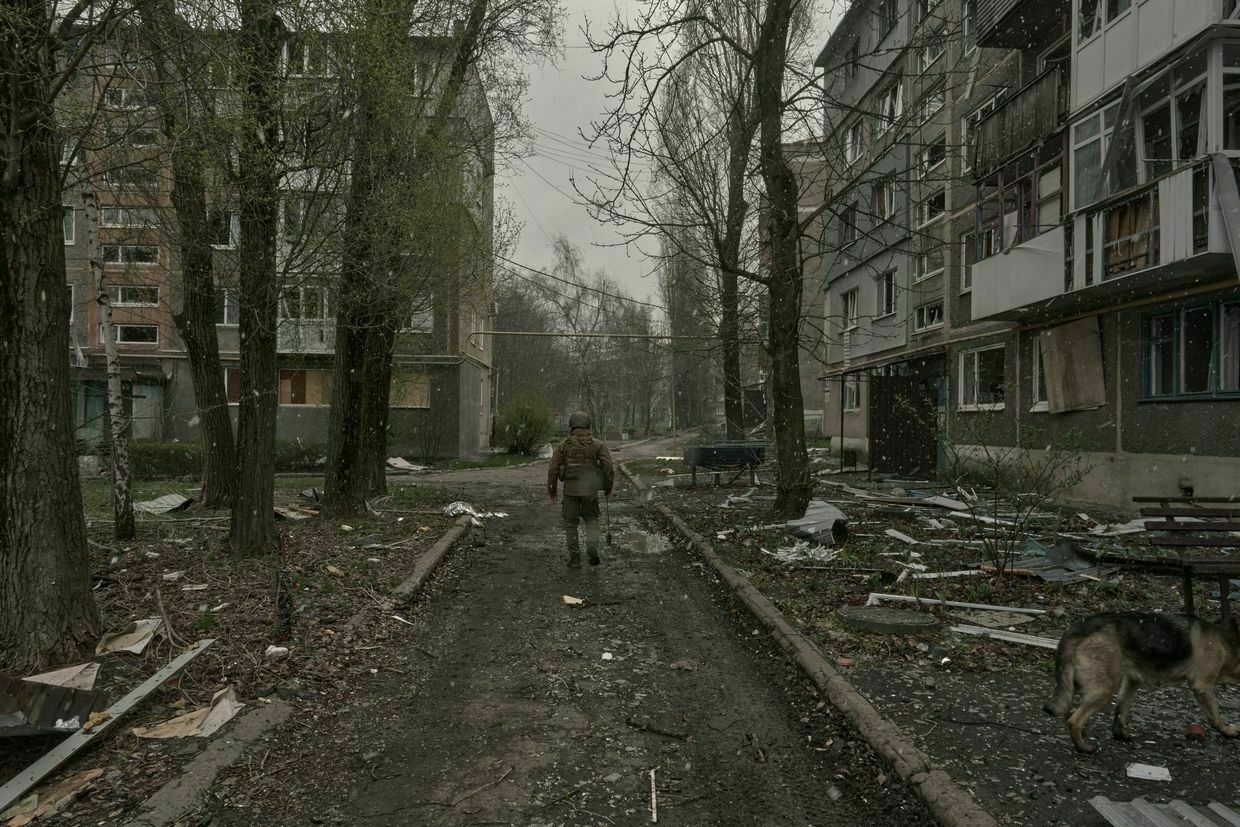
A soldier walks past destroyed residential buildings in Pokrovsk, Donetsk Oblast, Ukraine, on April 8, 2025. (Kostiantyn Liberov / Libkos / Getty Images) In response to Rodionova’s post, a number of Russian emigres argued in the comments that Rozova should not be held accountable for the crimes of her alleged father. They claimed she has made a public anti-war stance in social media — although her actual social media account is disputed — and pointed to her residence in Paris as evidence that she is unlikely part of Putin’s close inner circle.
The exact number of Putin’s children remains unconfirmed. It’s known that he has two daughters from his marriage to Lyudmila Putina, who he divorced in 2014. In 2024, the Russian investigative outlet Dossier Center reported that he also has two young sons with Alina Kabaeva, a former Olympic gymnast long rumored to be his partner. The two boys reportedly live in Putin’s residence on Lake Valdai in northwestern Russia.
Since coming forward with her revelation about Putin’s alleged daughter Rozova, Rodionova told the Kyiv Independent that she has dealt not only with public slander but also threats made against her.
“I want to believe that these people have expressed their personal opinion but lots of messages were suspiciously similar,” she said, suggesting that there was an organized campaign of retaliation.
Rodionova pushed back against those attacking her for raising questions about Rozova’s parentage, arguing that they were distorting the reasons behind her decision.
Regardless of Rozova’s personal politics or the extent to which she has or hasn’t benefited from the Russian regime, exiled artists like Rodionova argue that the ongoing dangers posed by Russia’s full-scale war require extra caution and transparency when it comes to who is welcomed into anti-war cultural spaces.
Controversial Russian literature prize sparks debate on separating culture from war crimesLaunched to promote Russian literature on the global stage during Russia’s full-scale invasion of Ukraine, the new Dar (“Gift”) literary prize is already mired in controversy — and not just for its troubling timing. After Ukrainian author Maria Galina declined the award for her wartime chronicle of Odesa, attention shiftedThe Kyiv IndependentKate Tsurkan
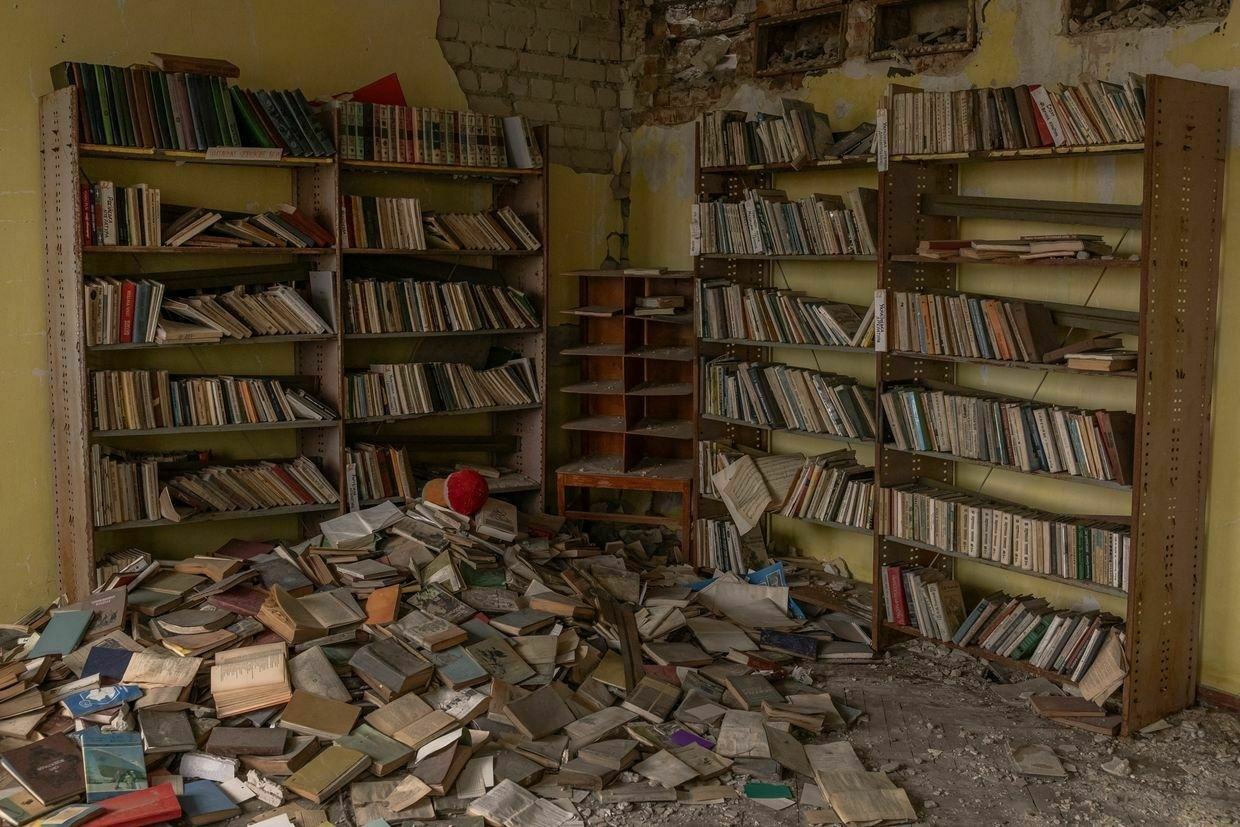
Note from the author:
Hi there, it’s Kate Tsurkan, thanks for reading this article. The story of Putin’s alleged daughter working in anti-war art galleries in Paris is one of those crazy stories that make you realize culture and politics are never that far removed from each other, especially when it comes to Russia’s war against Ukraine. I hope by reading this article you also reflected on questions of accountability, transparency, and trust during wartime. If you like reading this sort of material, please consider supporting us by becoming a paid member of the Kyiv Independent today.
-
Vucic offers to help rebuild Ukrainian cities, reaffirms support for Ukraine's territorial integrity
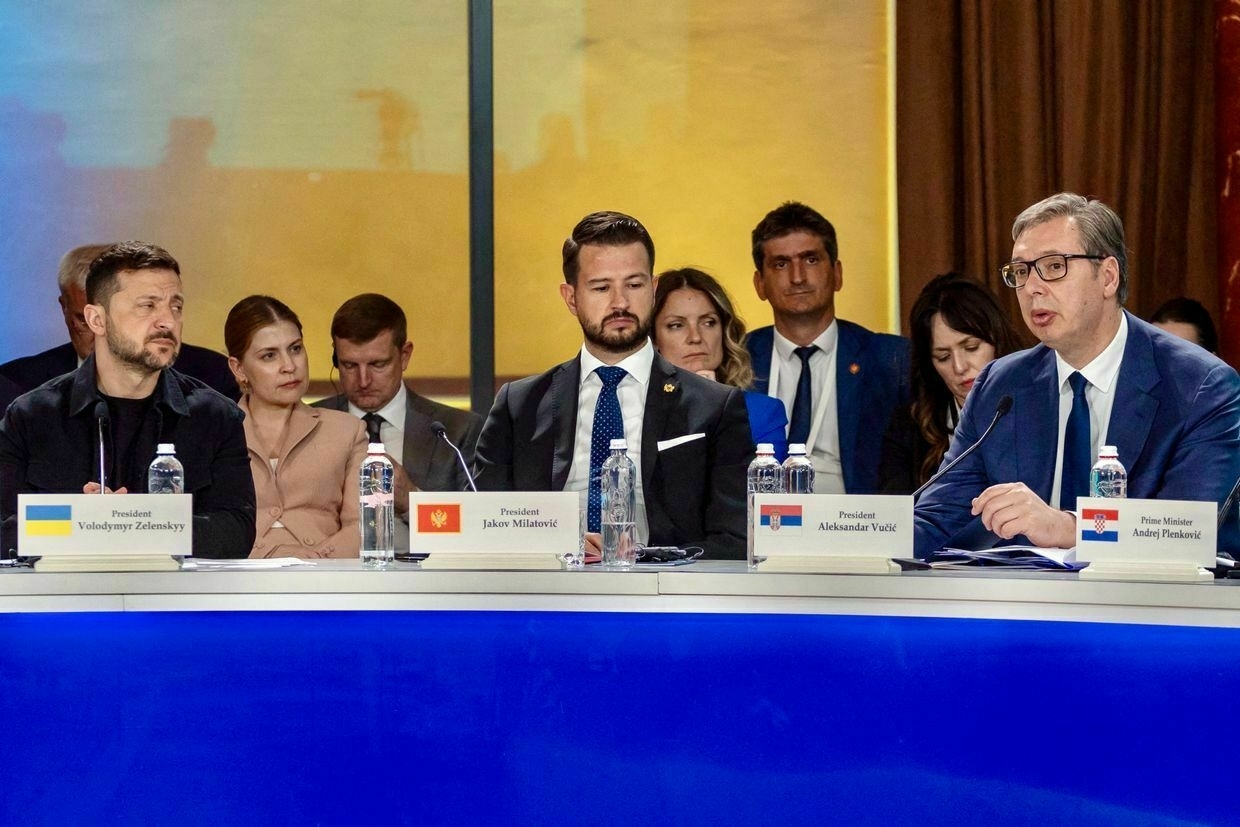
During his visit to Ukraine on June 11, Serbian President Aleksandar Vucic said his country is ready to help rebuild one or two Ukrainian cities or regions.
The one-day trip marked the Moscow-friendly Serbian leader’s first official visit to Ukraine and a significant moment in his efforts to maintain a neutral stance in Russia’s war against Ukraine while also advancing Serbia’s EU accession aspirations.
Speaking at the Ukraine–Southeast Europe Summit in Odesa, Vucic said Serbia wants to go beyond political declarations and provide practical assistance to Ukraine.
“I would like to take one or two cities or regions that we could rebuild. I think that would be very clear and noticeable to the Ukrainian people,” he said. “We are ready to listen to you and see how we can help you."
Vucic also reaffirmed Serbia’s commitment to international law and the UN Charter, saying that this includes supporting the territorial integrity of states — a message the president described as important for Kyiv.
“Ukraine can always count on Serbia’s humanitarian and political support for its territorial integrity,” he said. “We could be supportive in efforts to achieve a ceasefire."
Vucic was one of the few European leaders to attend Russia’s Victory Day celebrations in Moscow on May 9 — a move that drew criticism from EU officials.
Serbian president also told reporters that he did not sign the declaration of the Odesa summit, adding that by doing so, he “did not betray Russia."
Tensions between Belgrade and Moscow have risen in recent months after Russia’s intelligence services accused Serbian defense firms on May 29 of indirectly supplying weapons to Ukraine. Vucic has denied those claims.
Zelensky urges ‘stronger’ EU sanctions on Russia, lower oil price capPresident Volodymyr Zelensky said the upcoming 18th EU sanctions package “could be stronger,” especially in targeting Russian oil tankers and the financial sector.The Kyiv IndependentTim Zadorozhnyy
